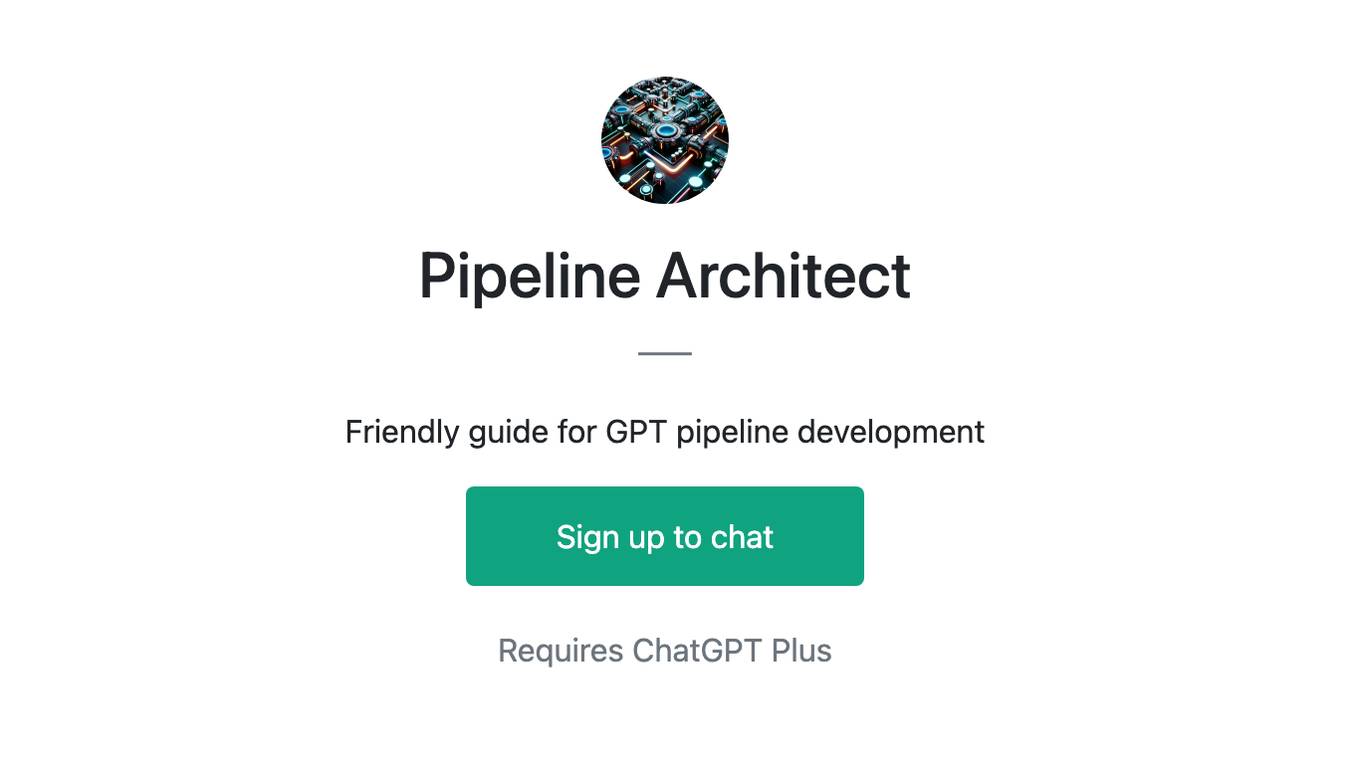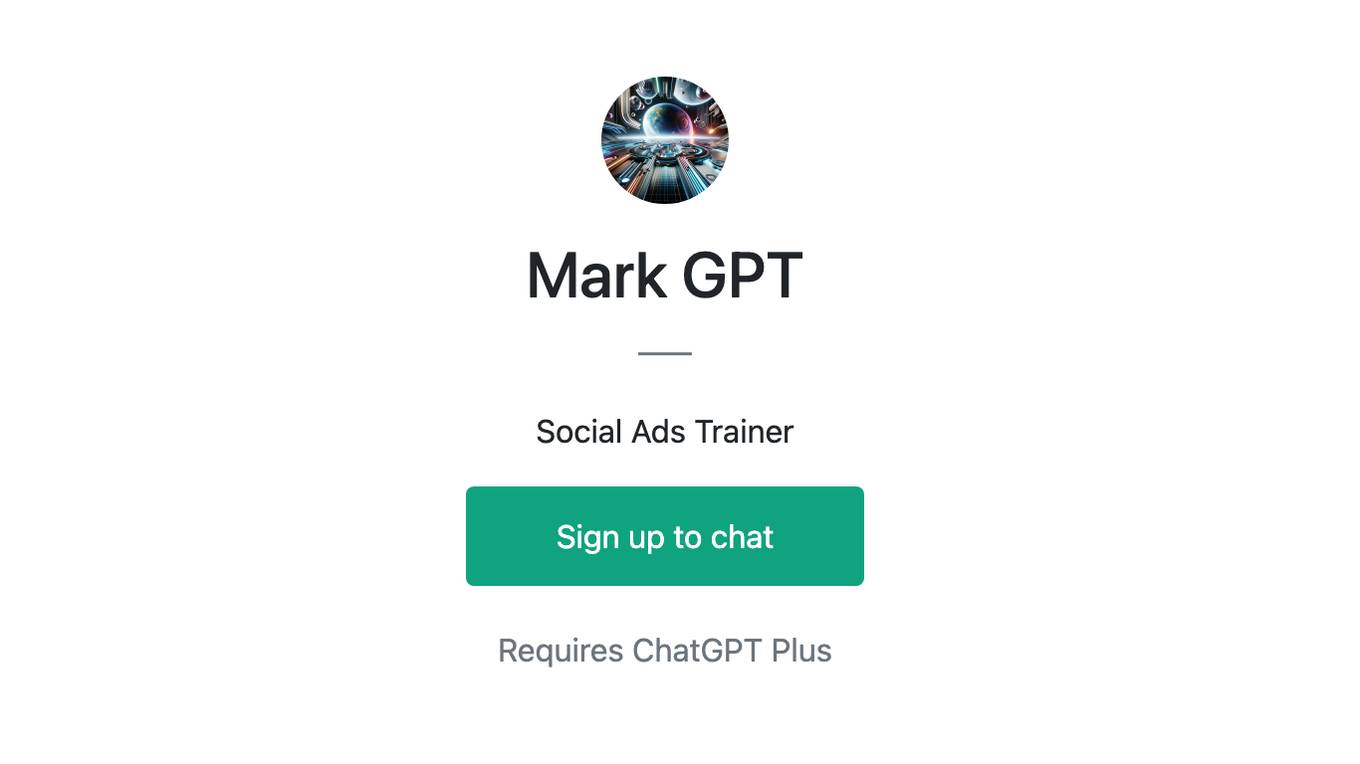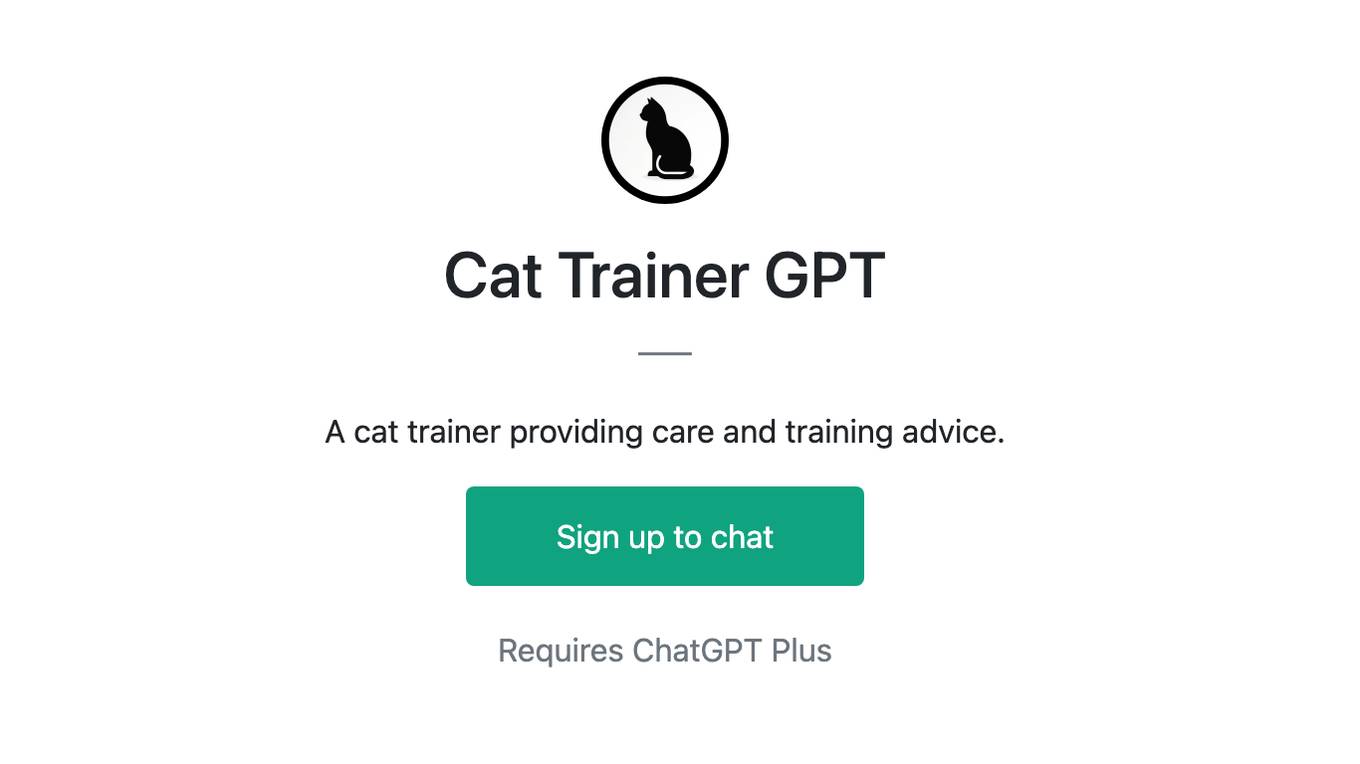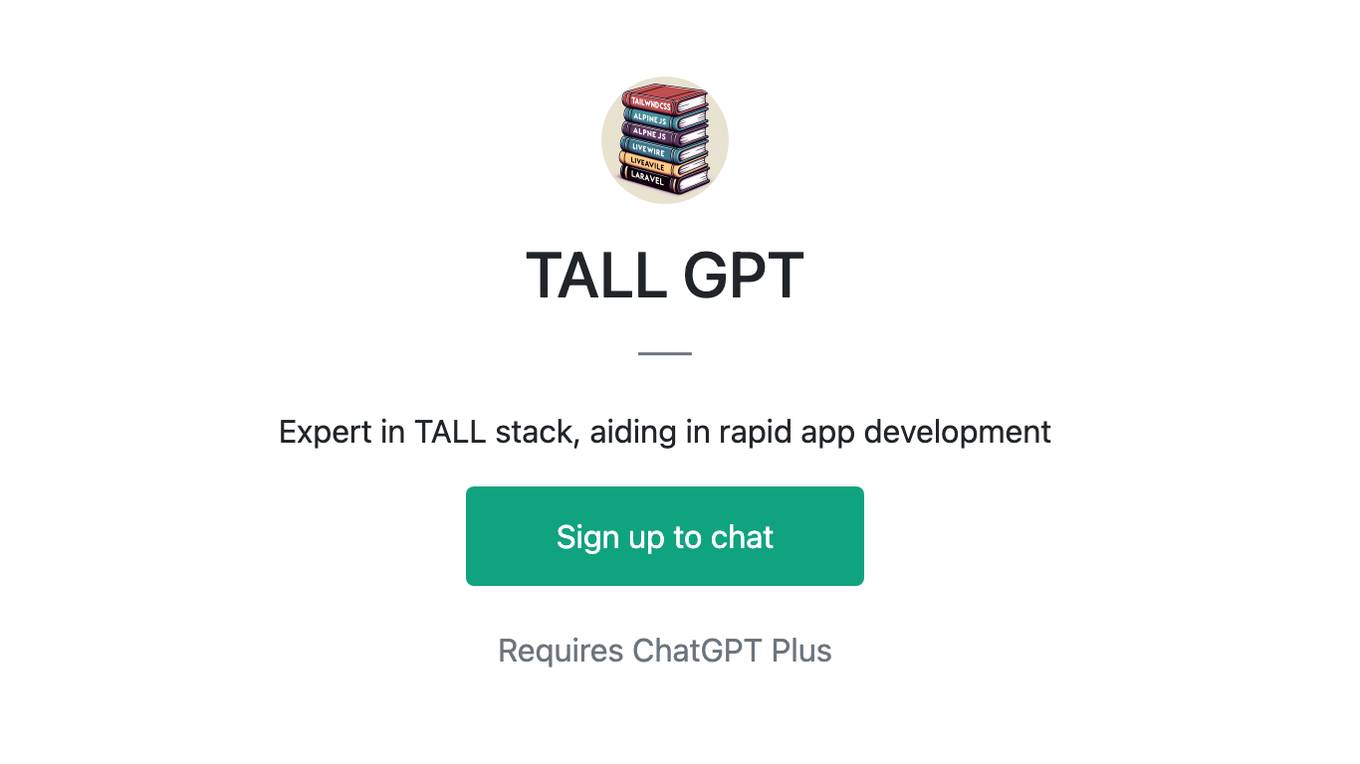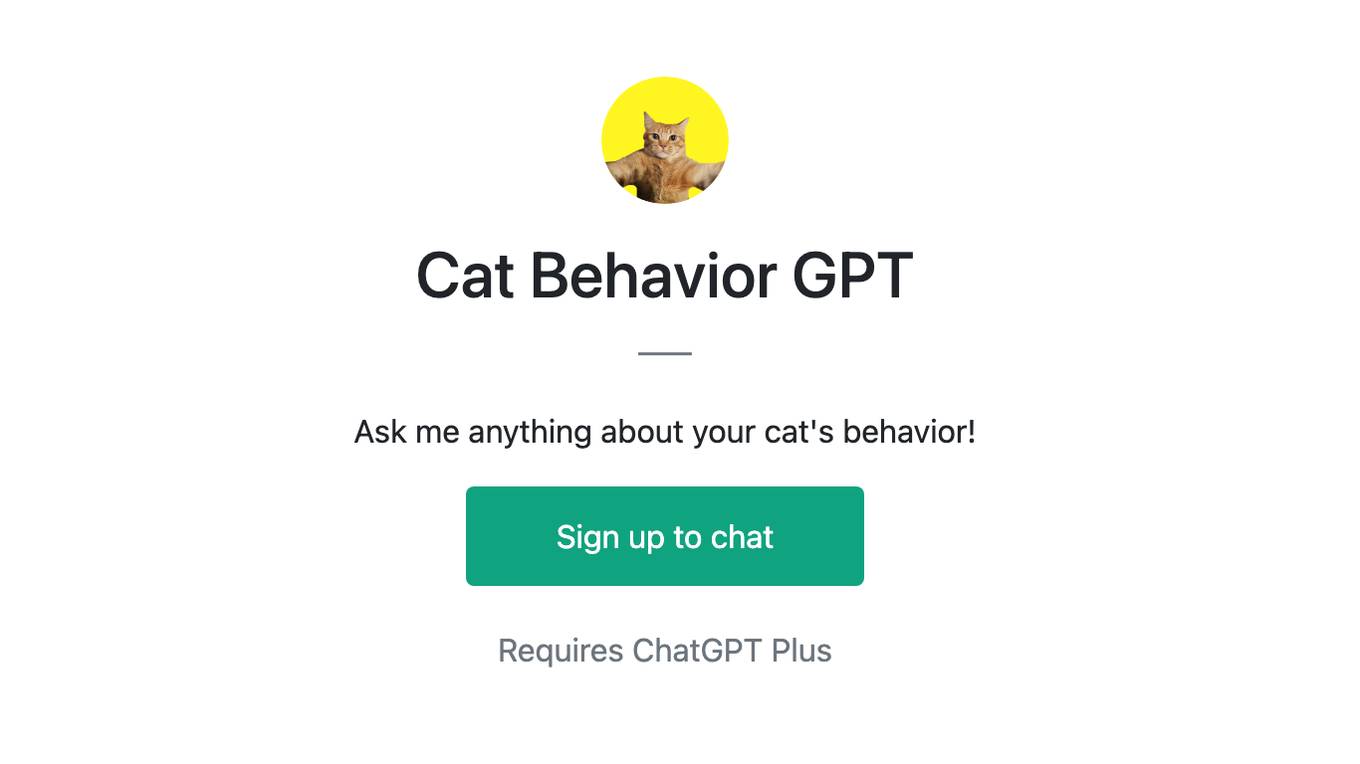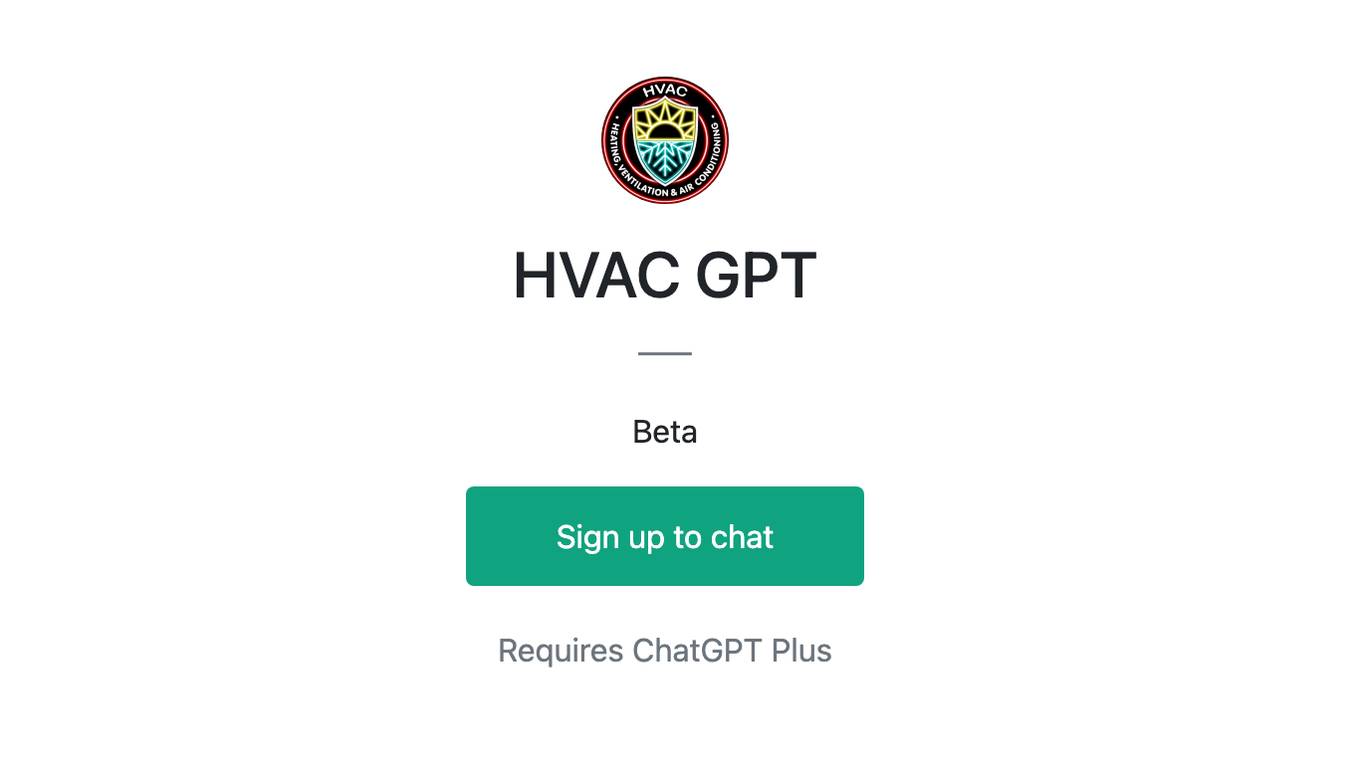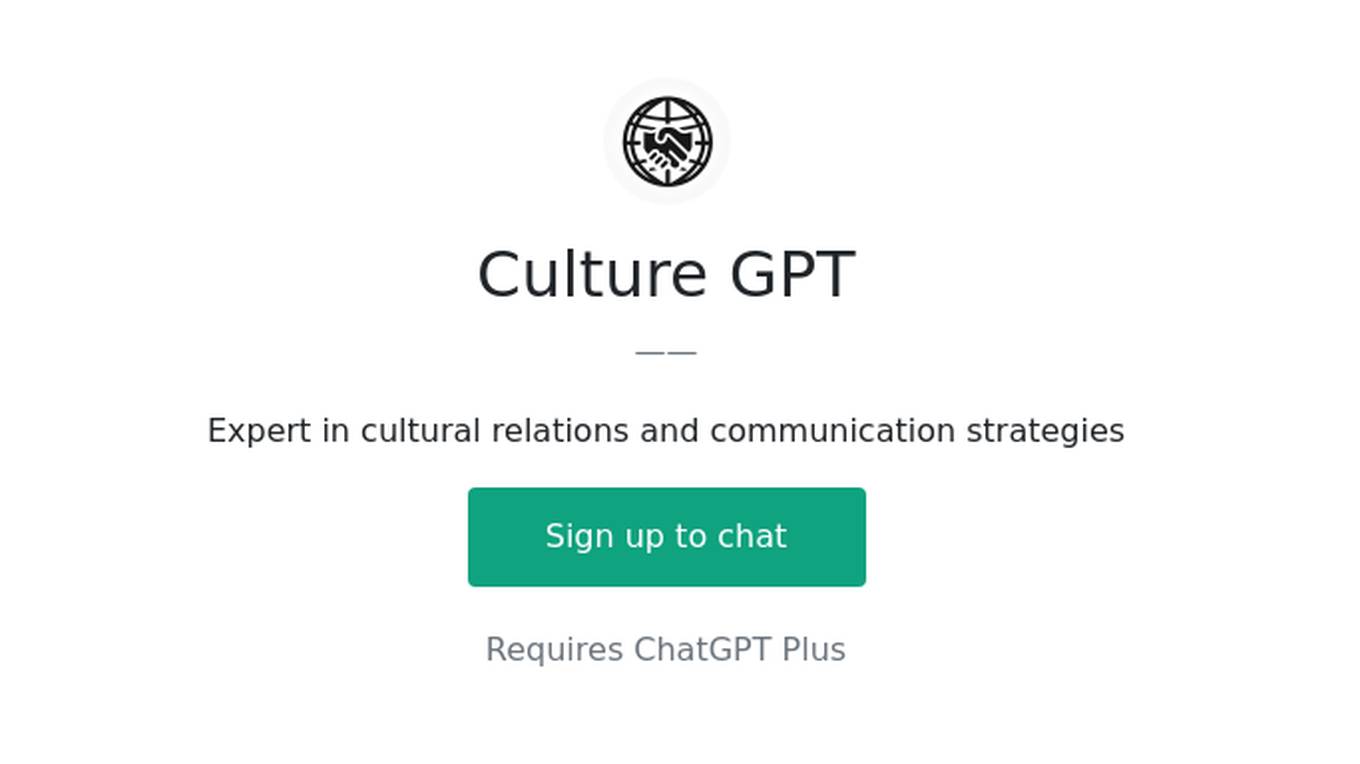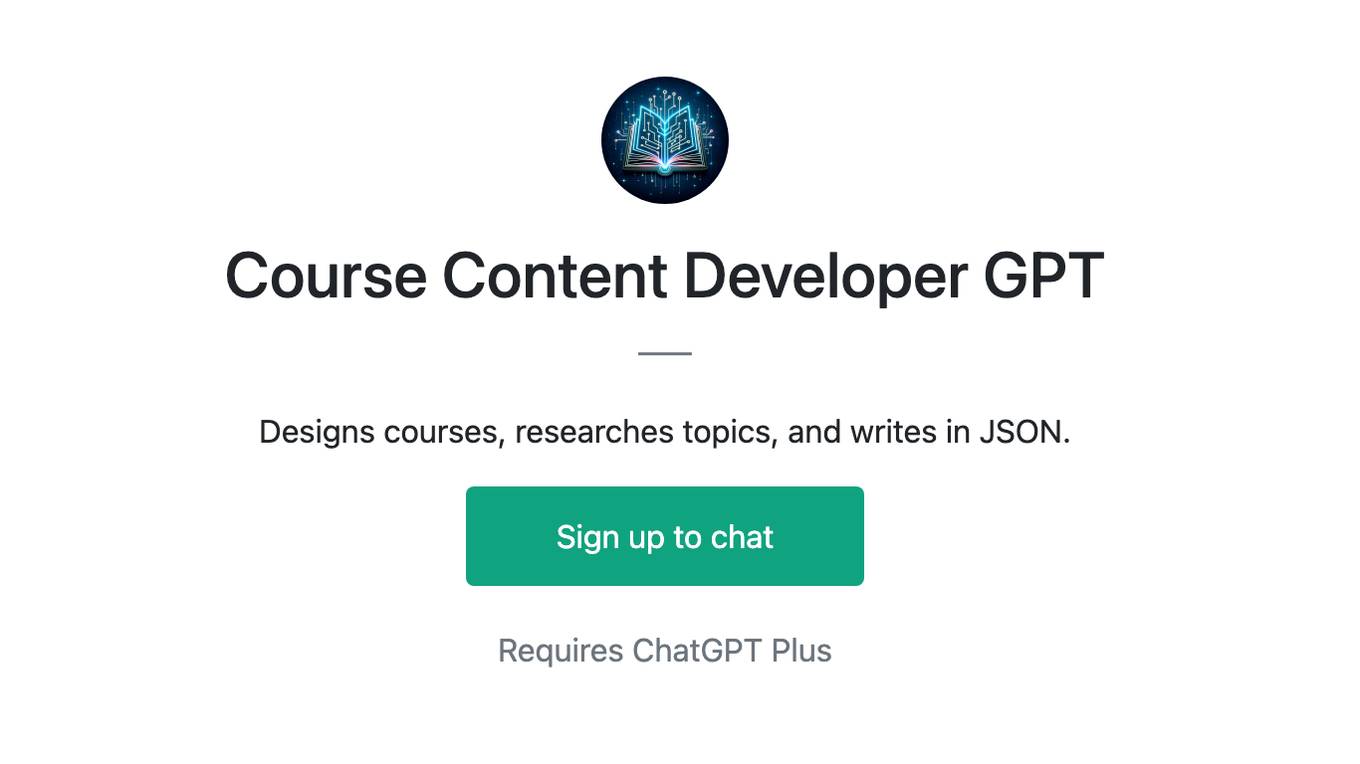Best AI tools for< Train Gpt >
20 - AI tool Sites
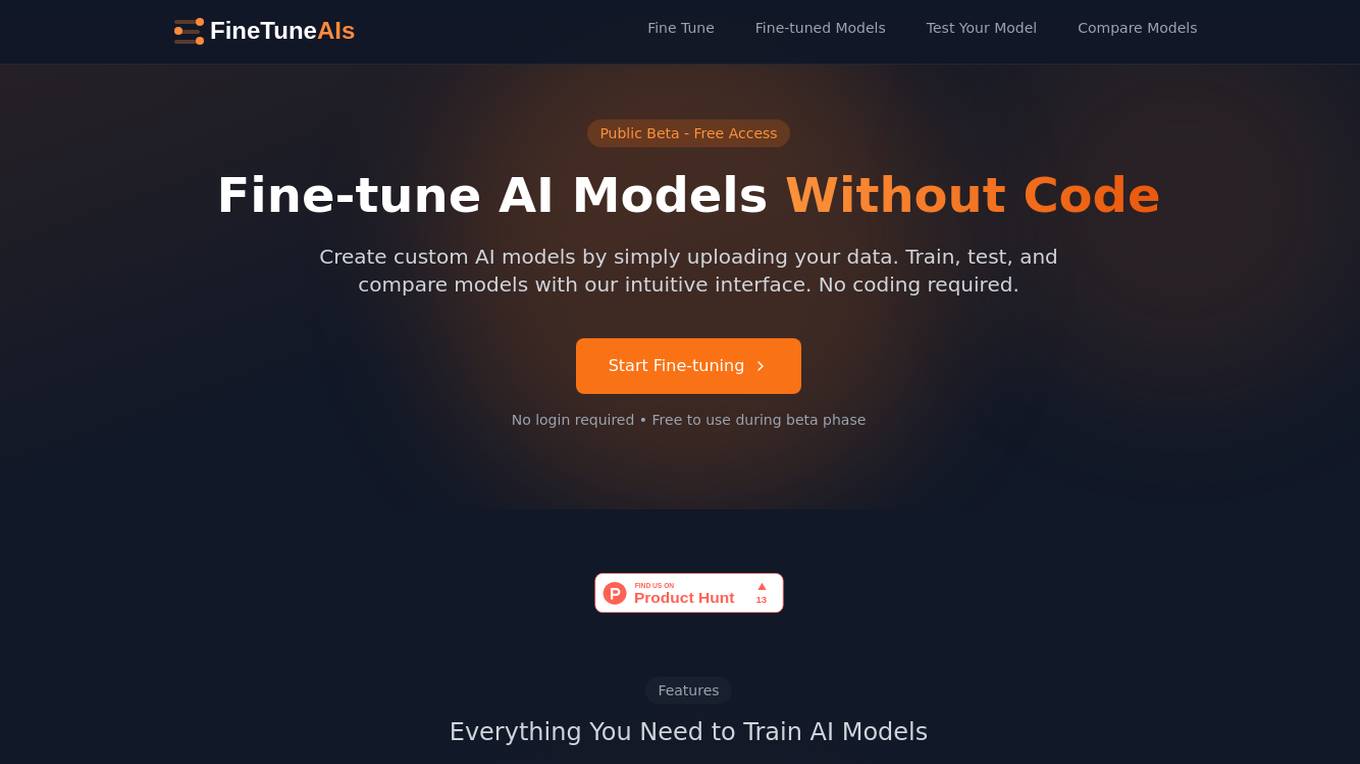
FineTuneAIs.com
FineTuneAIs.com is a platform that specializes in custom AI model fine-tuning. Users can fine-tune their AI models to achieve better performance and accuracy. The platform requires JavaScript to be enabled for optimal functionality.
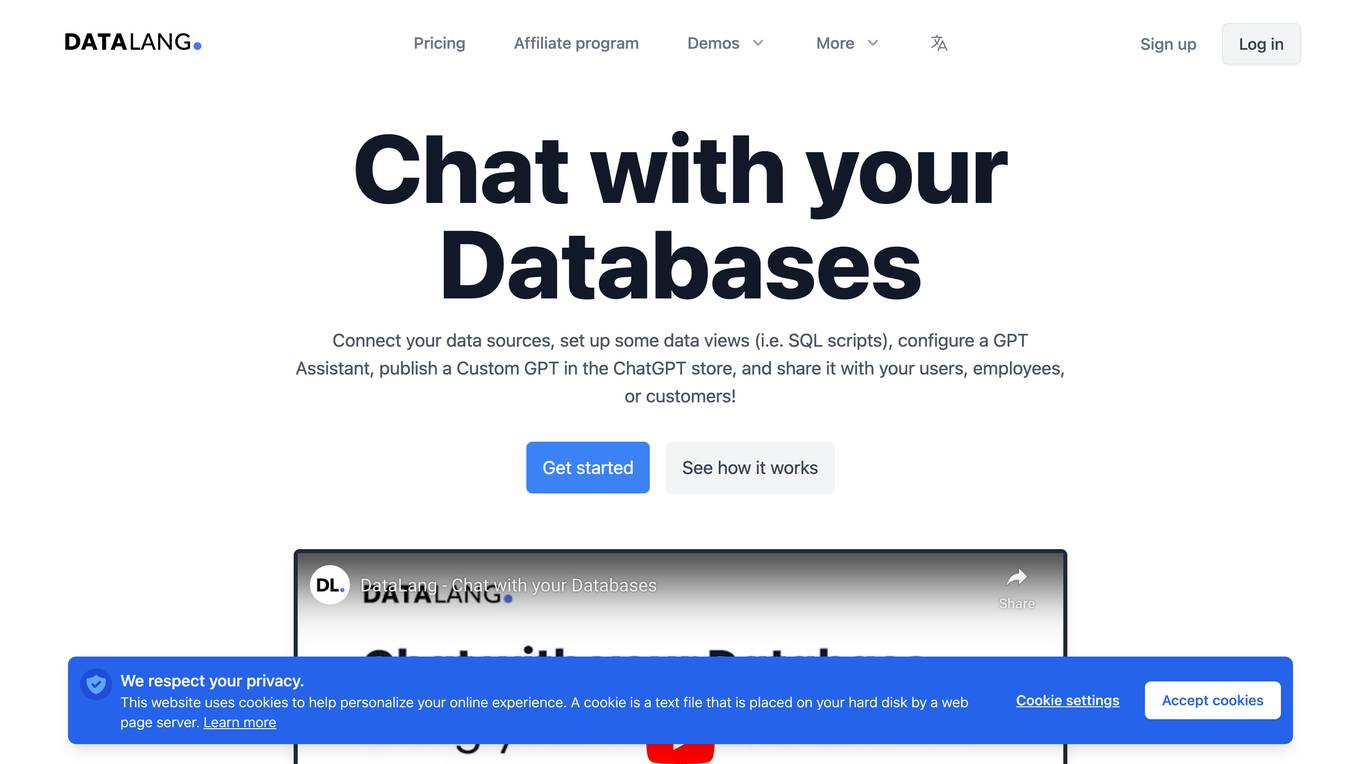
DataLang
DataLang is a tool that allows you to chat with your databases, expose a specific set of data (using SQL) to train GPT, and then chat with it in natural language. You can also use DataLang to automatically make your SQL views available via API, share it with your privately users, or make it public.
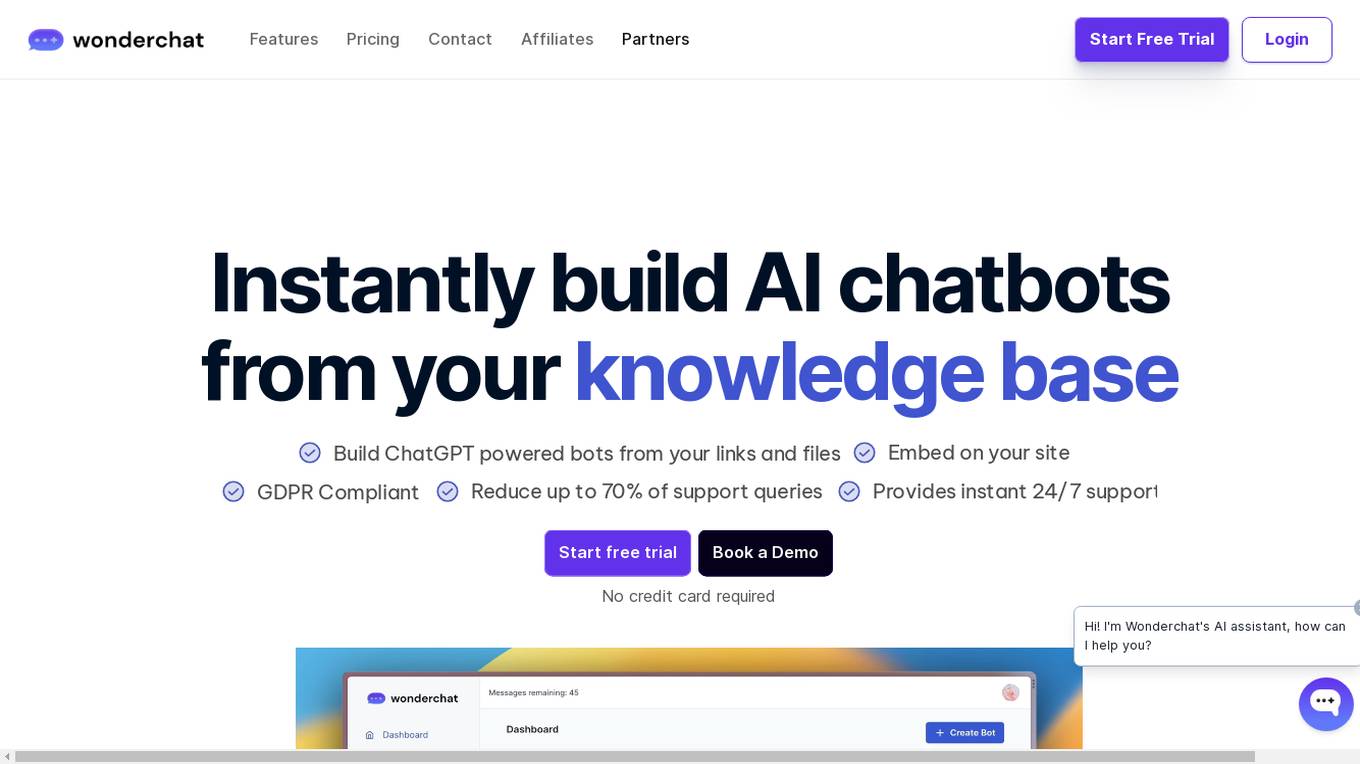
Wonderchat
Wonderchat is an AI chatbot builder that allows you to create a custom chatbot using your business data. You can build a chatbot in 5 minutes that can answer customer support queries, provide information about your products or services, and more. Wonderchat is easy to use, even if you don't have any coding experience. You can embed your chatbot on your website or use it on messaging platforms like Facebook Messenger and WhatsApp.
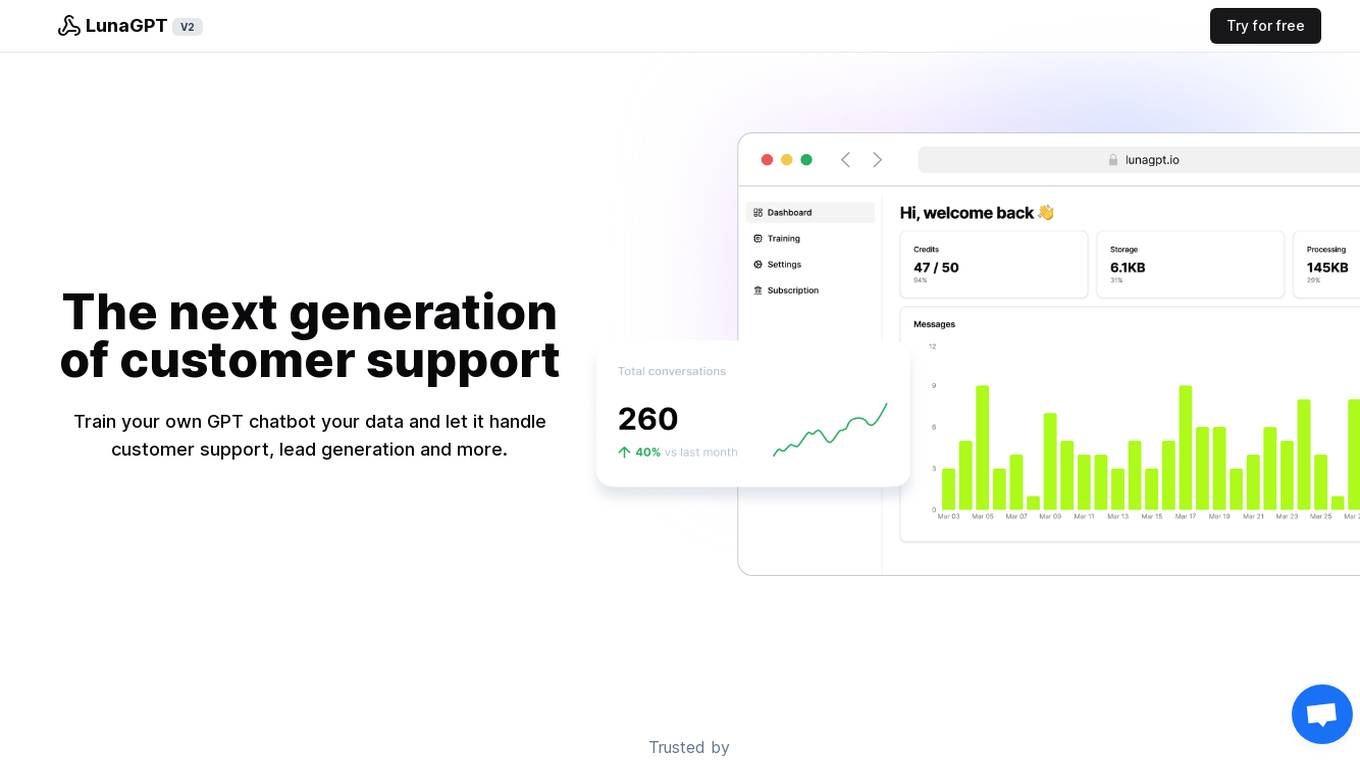
LunaGPT
LunaGPT is a cutting-edge automation tool powered by ChatGPT, designed to revolutionize customer support and lead generation. It allows users to train their own GPT chatbot on their data, enabling it to provide instant, friendly, and precise answers to customers 24/7. LunaGPT offers a state-of-the-art SaaS platform that can be customized to unlock the true potential of products. With powerful AI capabilities, including access to OpenAI conversational models like GPT-3.5-turbo and GPT-4, LunaGPT is a comprehensive solution for businesses looking to supercharge their customer support and lead generation efforts.
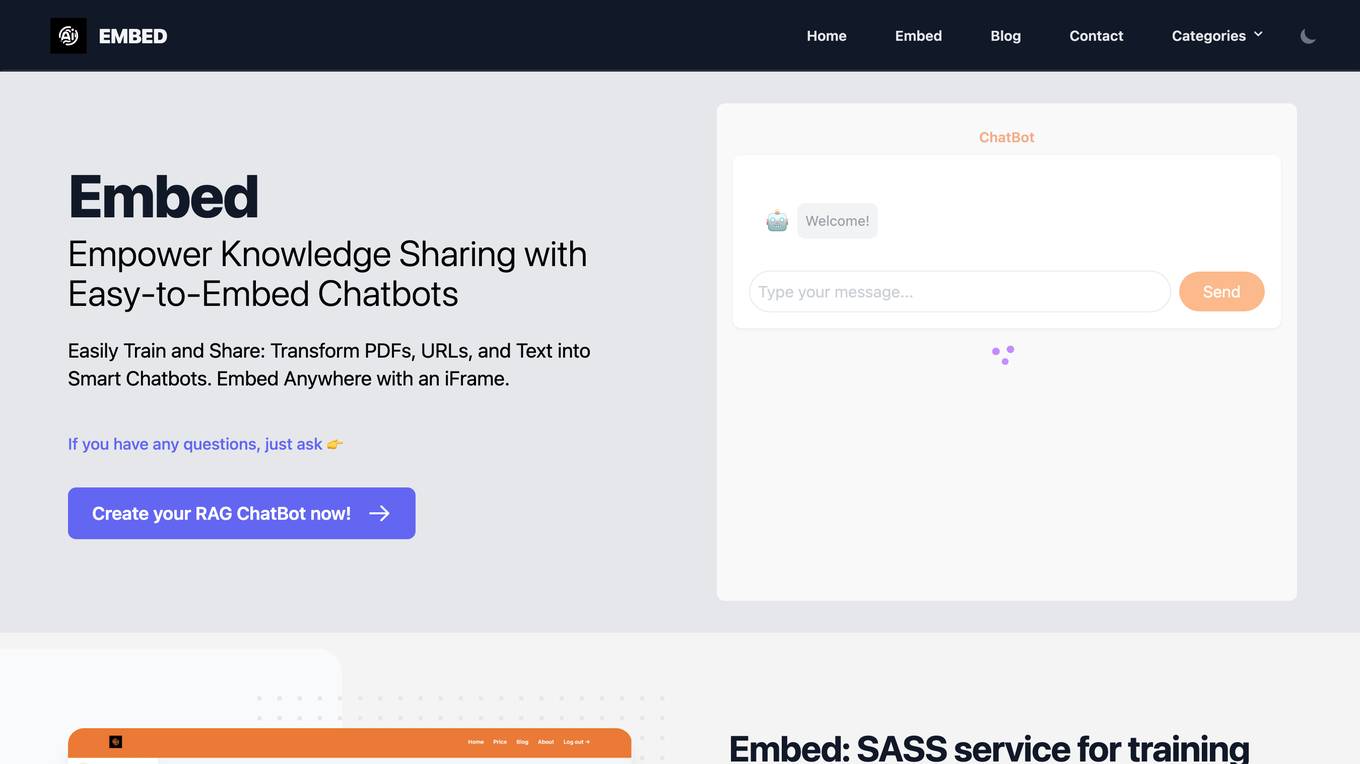
RAG ChatBot
RAG ChatBot is a service that allows users to easily train and share chatbots. It can transform PDFs, URLs, and text into smart chatbots that can be embedded anywhere with an iframe. RAG ChatBot is designed to make knowledge sharing easier and more efficient. It offers a variety of features to help users create and manage their chatbots, including easy knowledge training, continuous improvement, seamless integration with OpenAI Custom GPTs, secure API key integration, continuous optimization, and online privacy control.
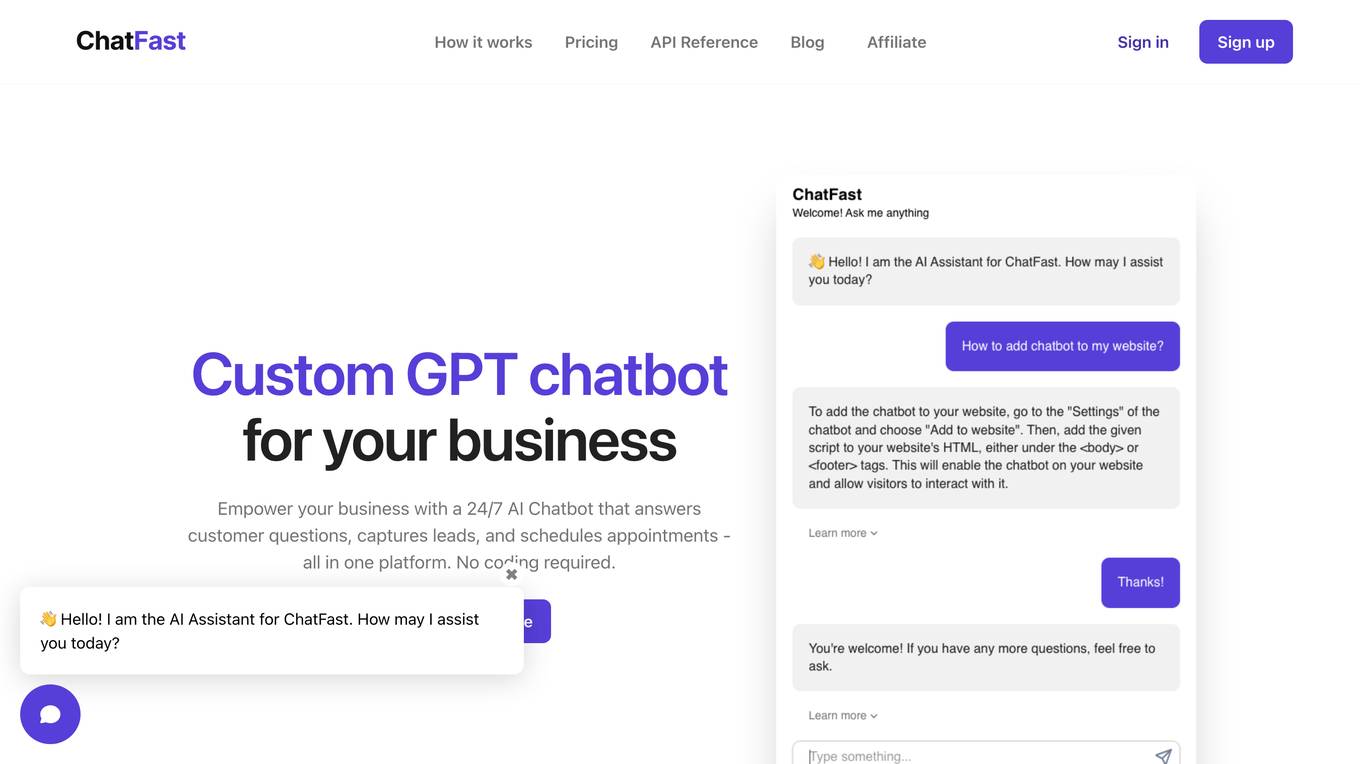
ChatFast
ChatFast is a platform that allows businesses to create custom GPT chatbots using their own data. These chatbots can be used to answer customer questions, capture leads, and schedule appointments. ChatFast is easy to use and requires no coding. It is trusted by thousands of businesses and provides a range of powerful features, including the ability to train chatbots on multiple data sources, revise responses, capture leads, and create smart forms.
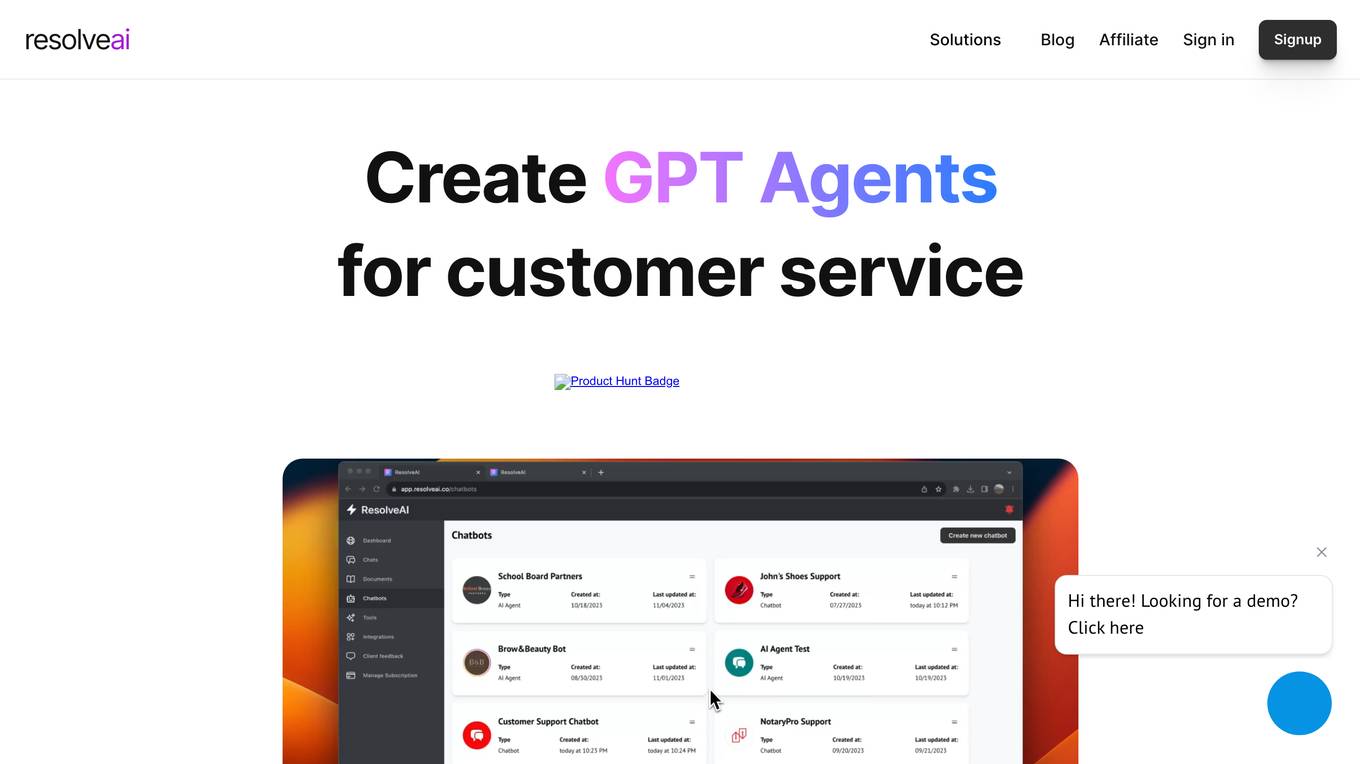
ResolveAI
ResolveAI is a platform that allows users to create and train AI agents for customer service. These agents can be used to automate tasks such as answering FAQs, scheduling meetings, and collecting leads. ResolveAI's agents are trained using a variety of sources, including documents, website pages, and live data sources. Once trained, agents can be customized to fit the user's brand and integrated with a variety of platforms, including websites, social media, and messaging apps.
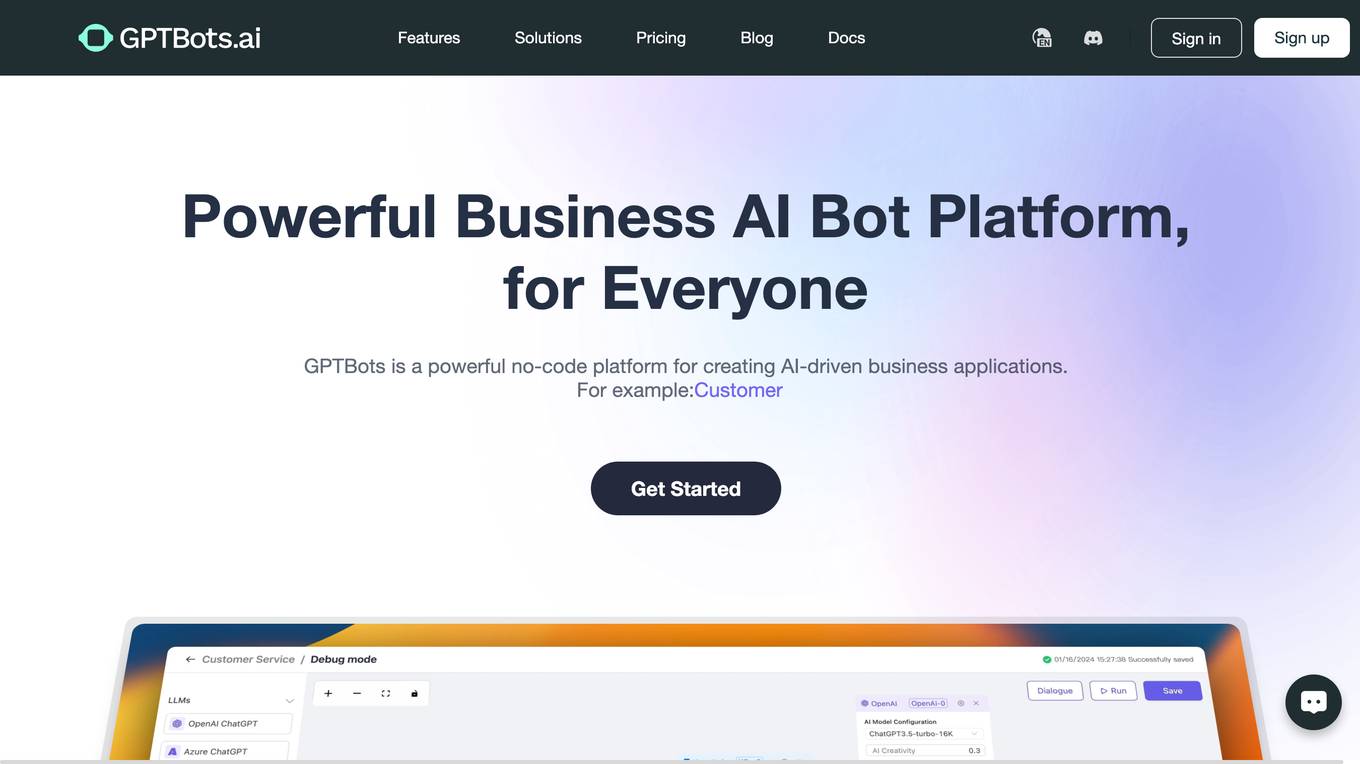
GPTBots
GPTBots.ai is a powerful no-code platform for creating AI-driven business applications. It seamlessly integrates large language models with organizational data, services, and workflows to empower AI bots in driving business growth. The platform allows users to build and train AI bots without coding experience, access best-practice AI bot templates, optimize and customize AI knowledge base, and adapt to various scenarios with intelligent agent bots. GPTBots supports diverse input types, offers versatile language models, enables seamless chatbot-human handoff, and provides robust API and SDK for embedding capabilities into products. Trusted by over 100k companies worldwide, GPTBots helps enterprises enhance customer service, leads generation, SEO writing, data analysis, and more.
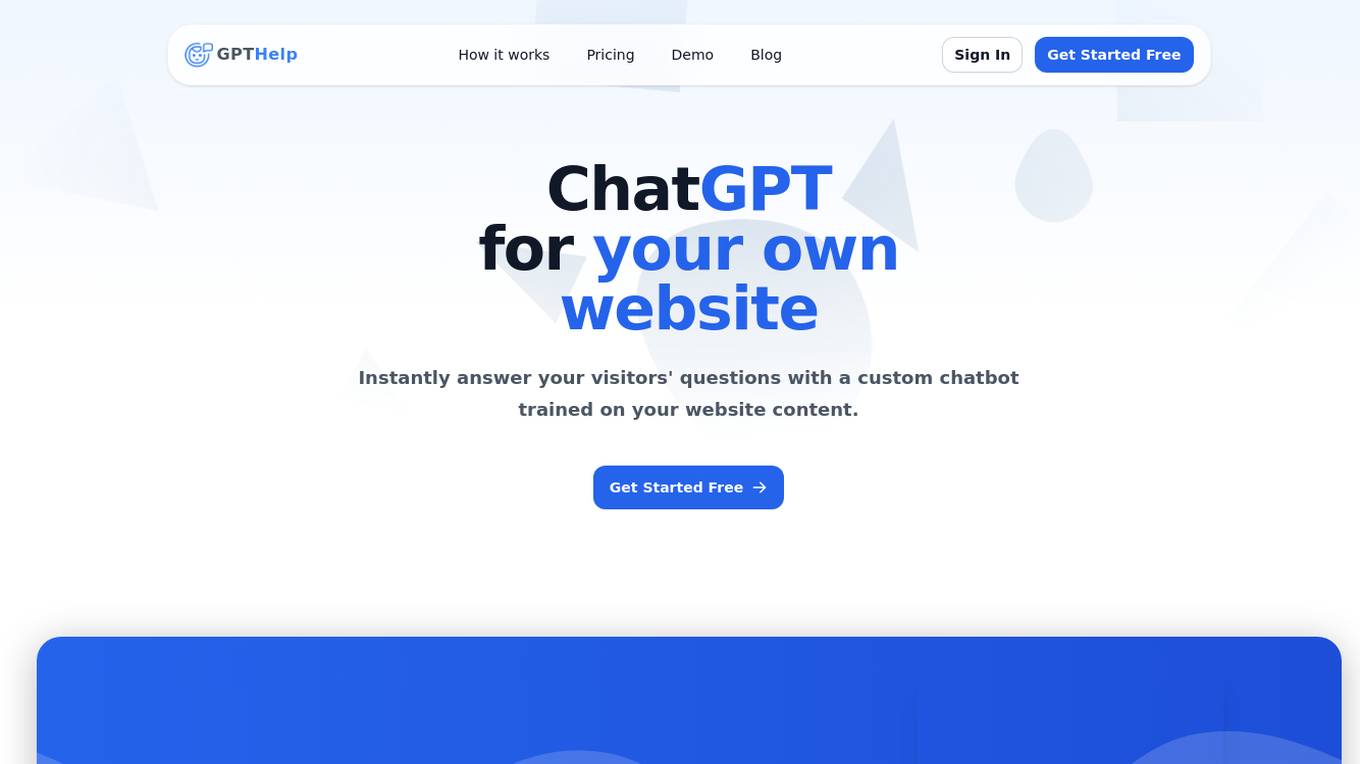
GPTHelp.ai
GPTHelp.ai is an AI chatbot tool designed to help website owners provide instant answers to their visitors' questions. The tool is trained on the website content, files, and FAQs to deliver accurate responses. Users can customize the chatbot's design, behavior, and personality to fit their needs. With GPTHelp.ai, creating and training your own AI chatbot is quick and easy, eliminating the need for manual setup of FAQs. The tool also allows users to monitor conversations, intervene if necessary, and view chat history for performance evaluation.
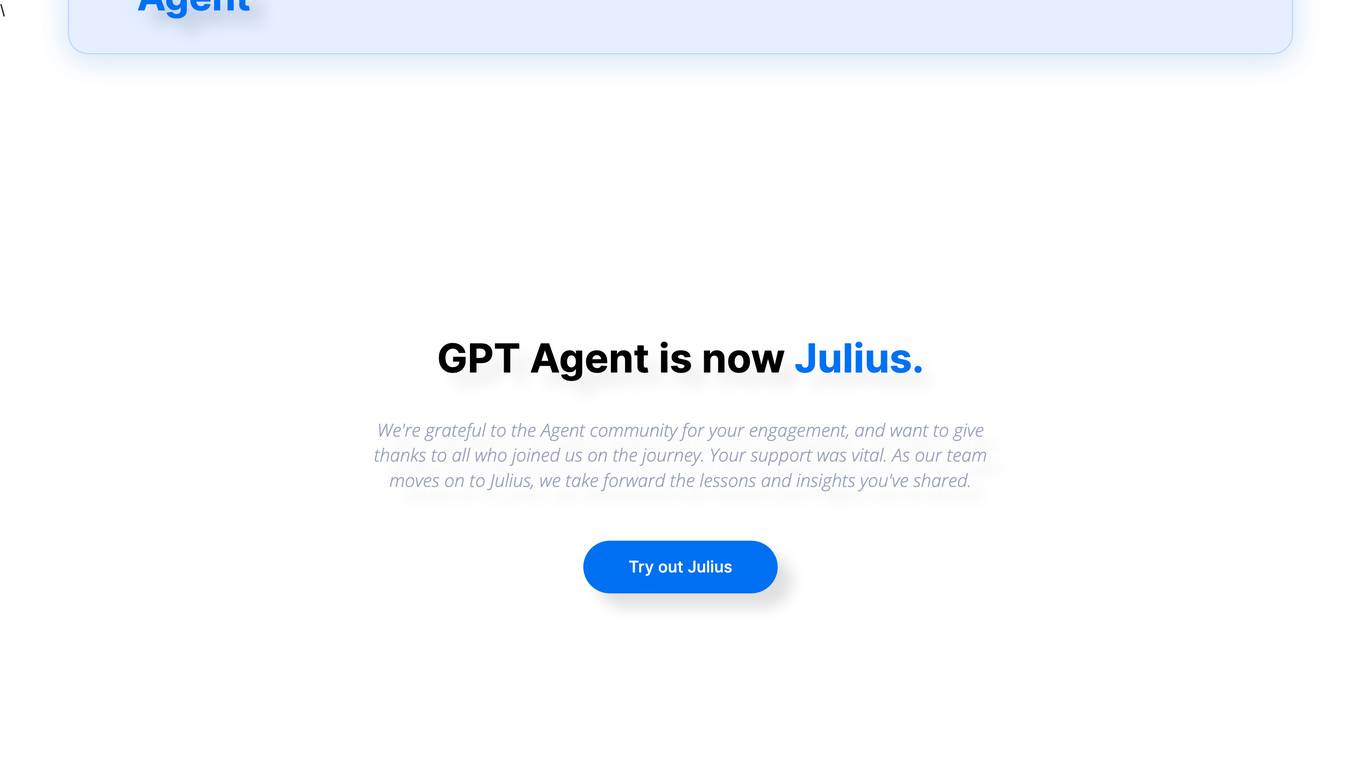
Julius
Julius is an AI-powered tool that helps users analyze data and files. It can perform various tasks such as generating visualizations, answering data questions, and performing statistical modeling. Julius is designed to save users time and effort by automating complex data analysis tasks.
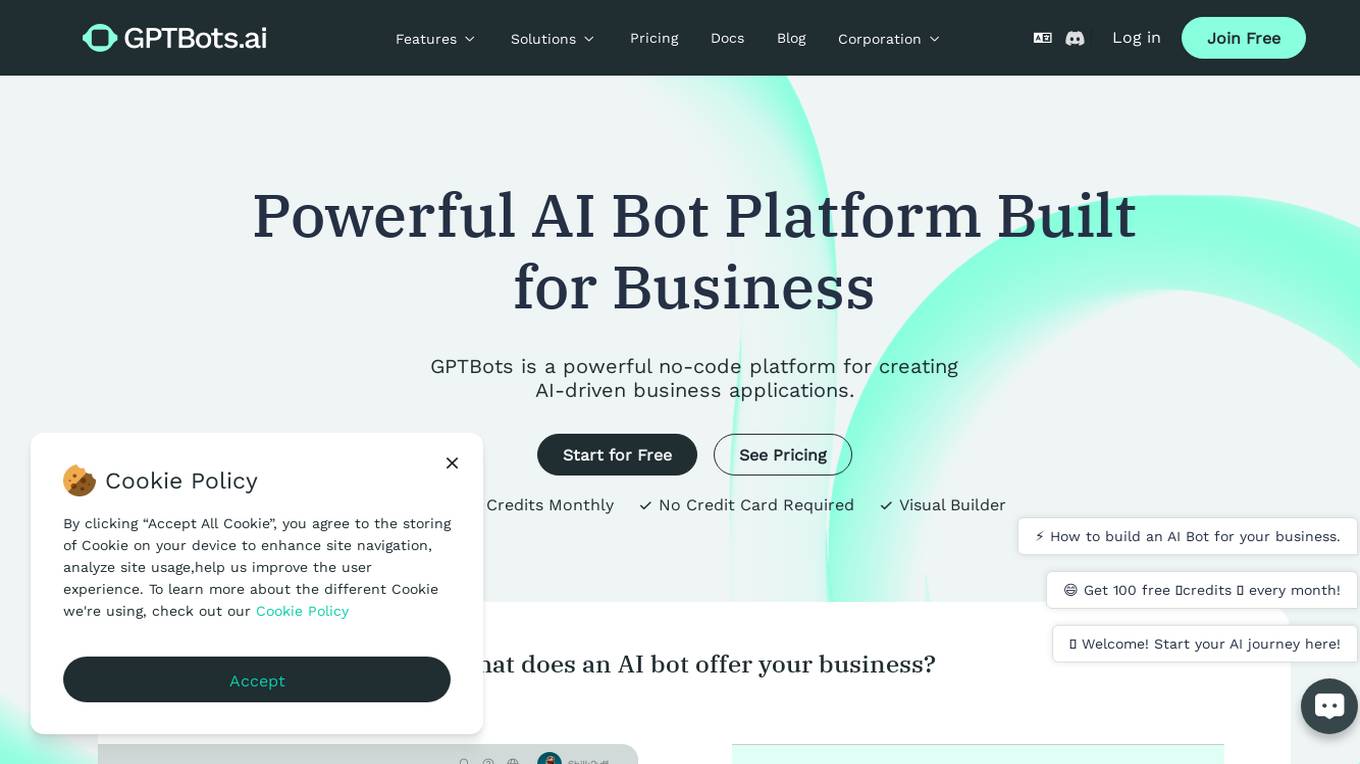
GPTBots
GPTBots.ai is a powerful no-code platform for creating AI-driven business applications. It seamlessly integrates large language models with organizational data, services, and workflows to empower AI bots in driving business growth. The platform allows users to build and train AI bots without coding experience, access best-practice templates, optimize AI knowledge bases, and adapt to various scenarios with intelligent agent bots. GPTBots supports diverse input types, offers versatile language models, and enables seamless chatbot-human handoff. Trusted by over 100k companies worldwide, GPTBots enhances customer support, leads generation, SEO writing, and data analysis, catering to various industries.
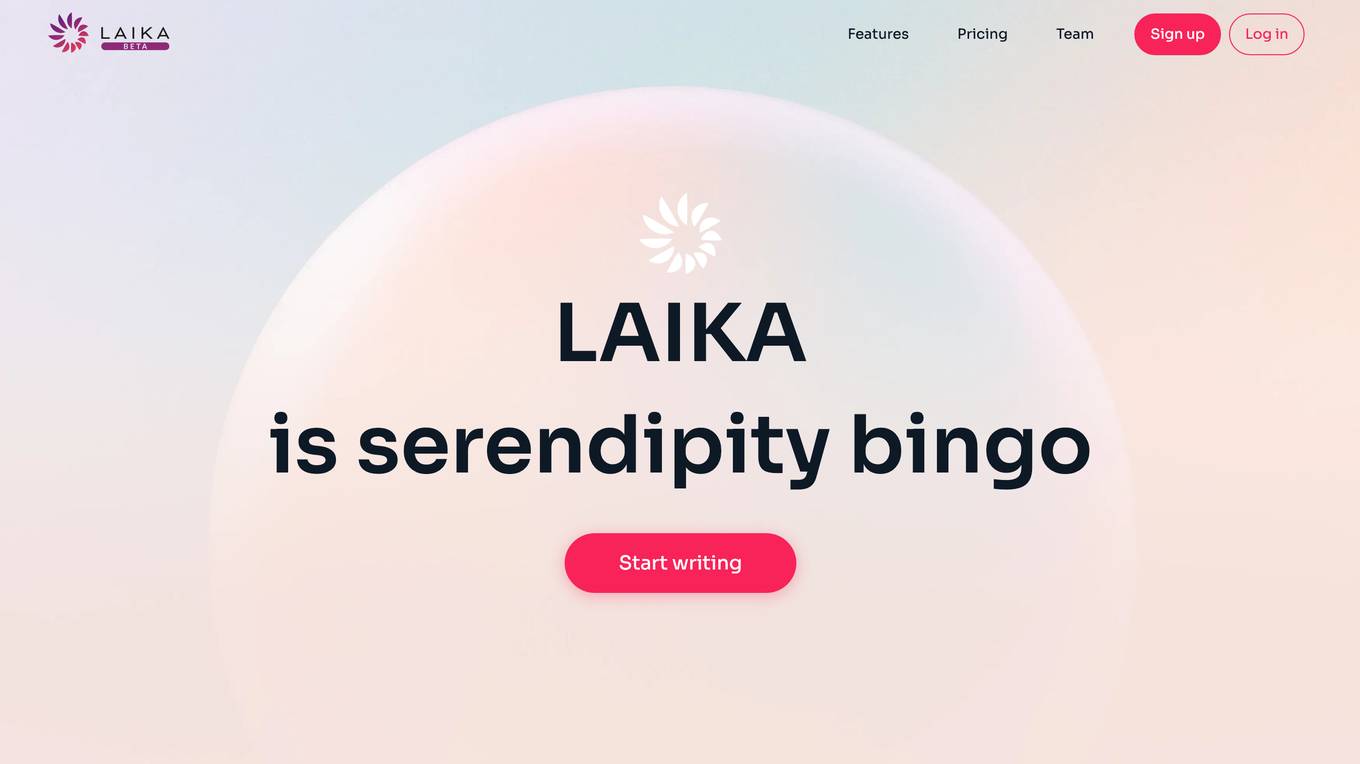
Laika
Laika is an AI-powered writing assistant that helps you write better, faster, and more efficiently. With Laika, you can generate text, translate languages, summarize documents, and more. Laika is designed to be easy to use, so you can get started right away. Just type in your text and Laika will do the rest.
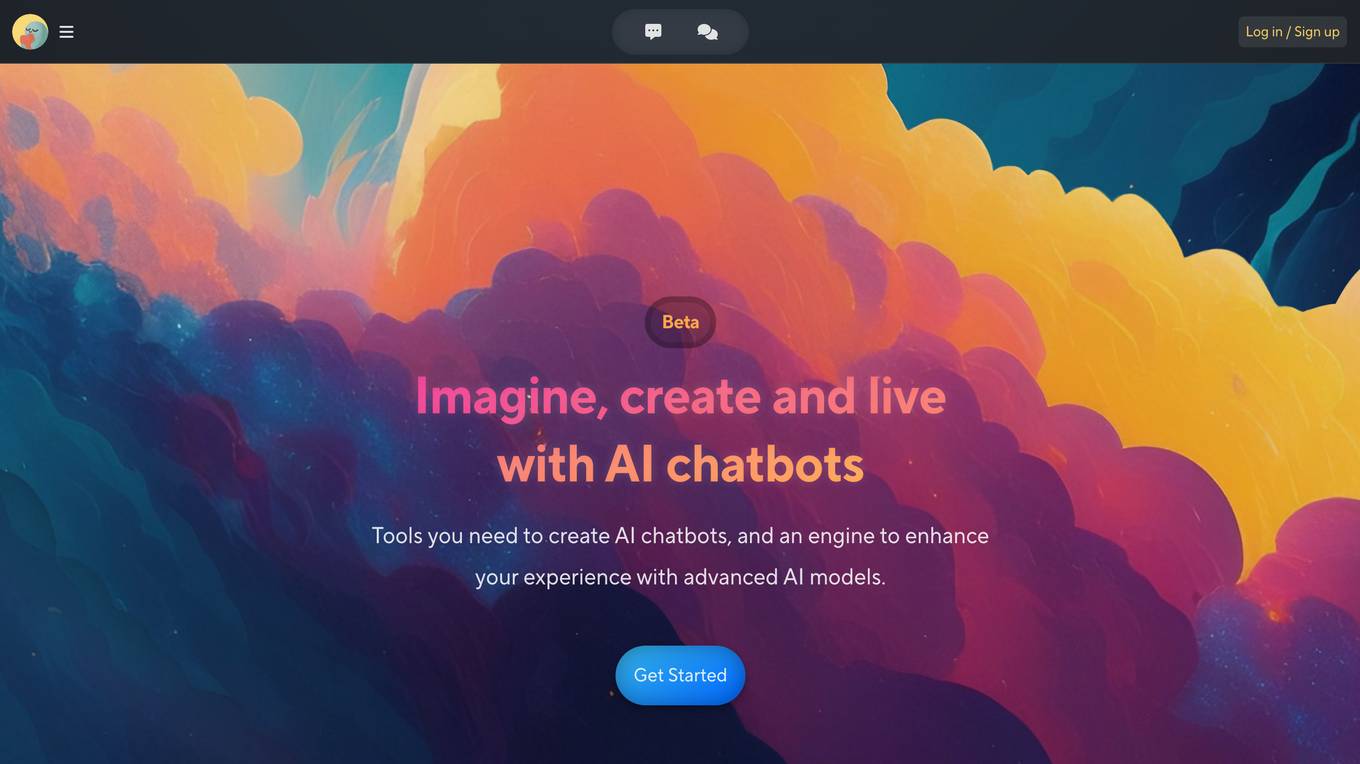
Create AI Characters and Chat with AI
This website allows users to create AI characters and chat with them. Users can customize their characters' appearance, personality, and interests. They can also choose from a variety of topics to chat about. The website uses artificial intelligence to generate the characters' responses, which are designed to be realistic and engaging.
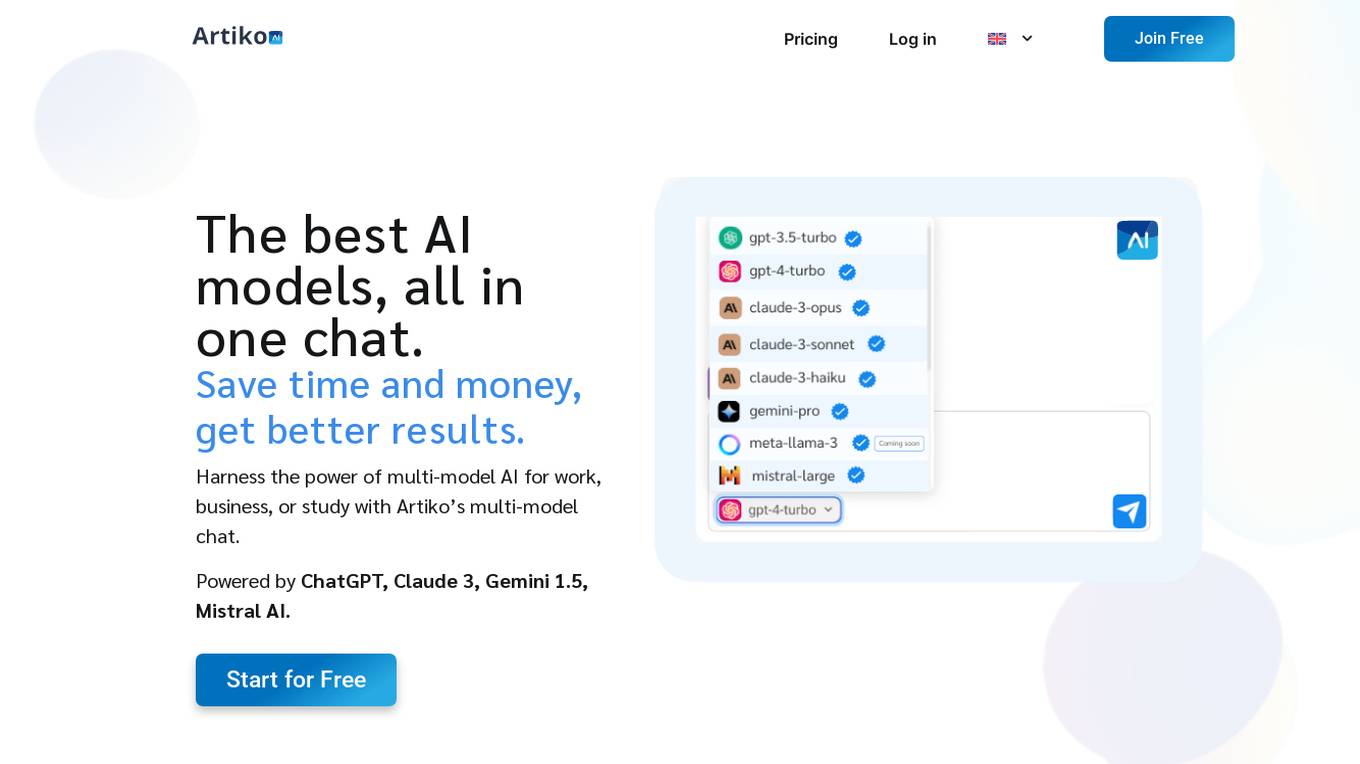
Artiko.ai
Artiko.ai is a multi-model AI chat platform that integrates advanced AI models such as ChatGPT, Claude 3, Gemini 1.5, and Mistral AI. It offers a convenient and cost-effective solution for work, business, or study by providing a single chat interface to harness the power of multi-model AI. Users can save time and money while achieving better results through features like text rewriting, data conversation, AI assistants, website chatbot, PDF and document chat, translation, brainstorming, and integration with various tools like Woocommerce, Amazon, Salesforce, and more.
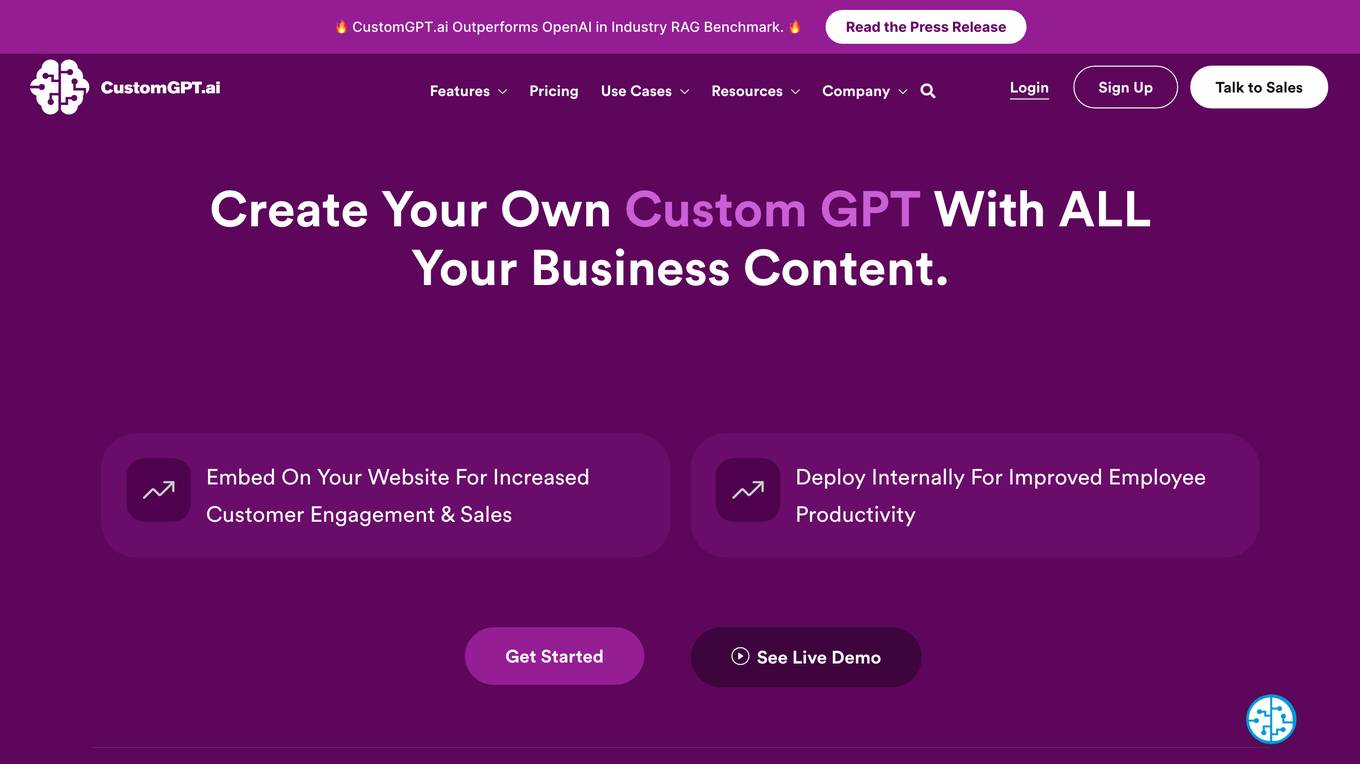
CustomGPT.ai
CustomGPT.ai is a no-code platform that allows businesses to create their own custom ChatGPT chatbots using their own business content. The platform is powered by GPT-4 and provides a range of features, including the ability to upload documents, integrate with other systems, and customize the chatbot's appearance and behavior. CustomGPT.ai is designed to help businesses improve customer service, employee efficiency, and knowledge management.
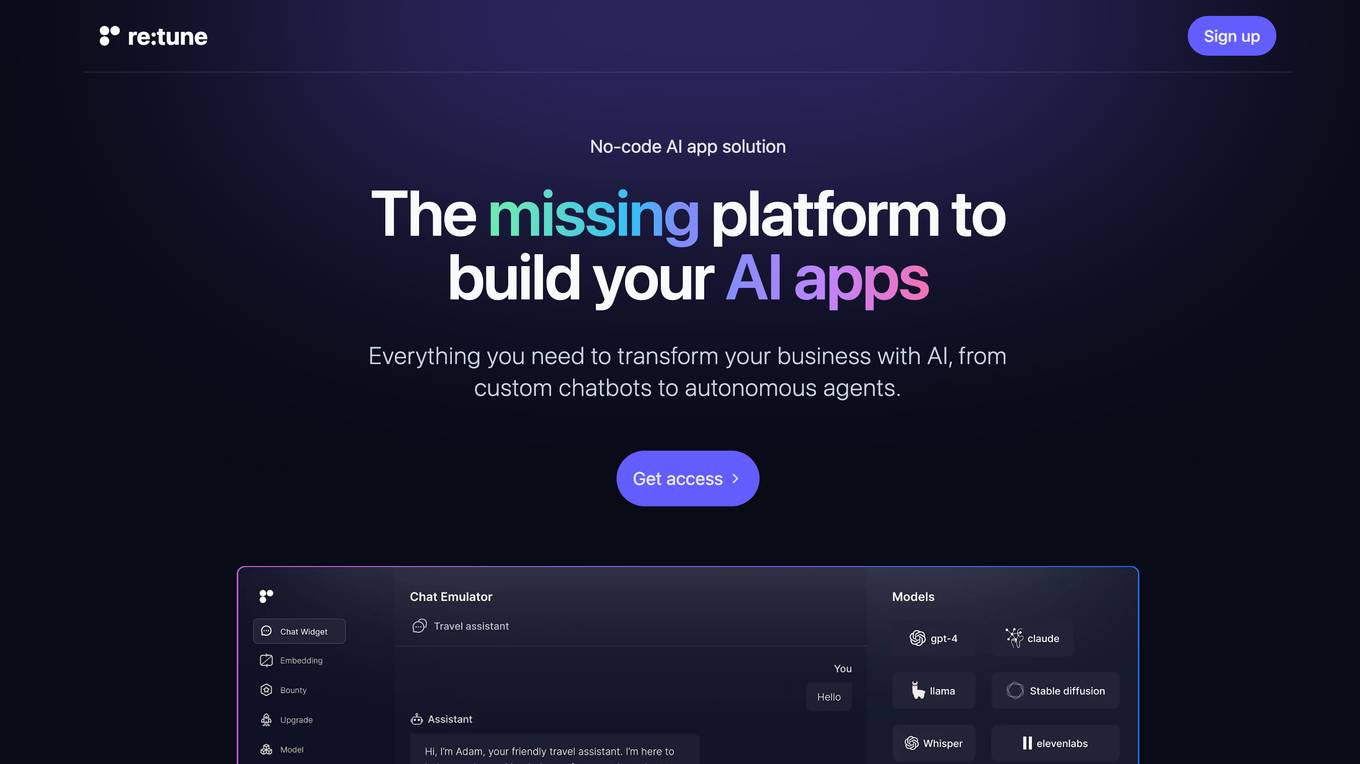
re:tune
re:tune is a no-code AI app solution that provides everything you need to transform your business with AI, from custom chatbots to autonomous agents. With re:tune, you can build chatbots for any use case, connect any data source, and integrate with all your favorite tools and platforms. re:tune is the missing platform to build your AI apps.
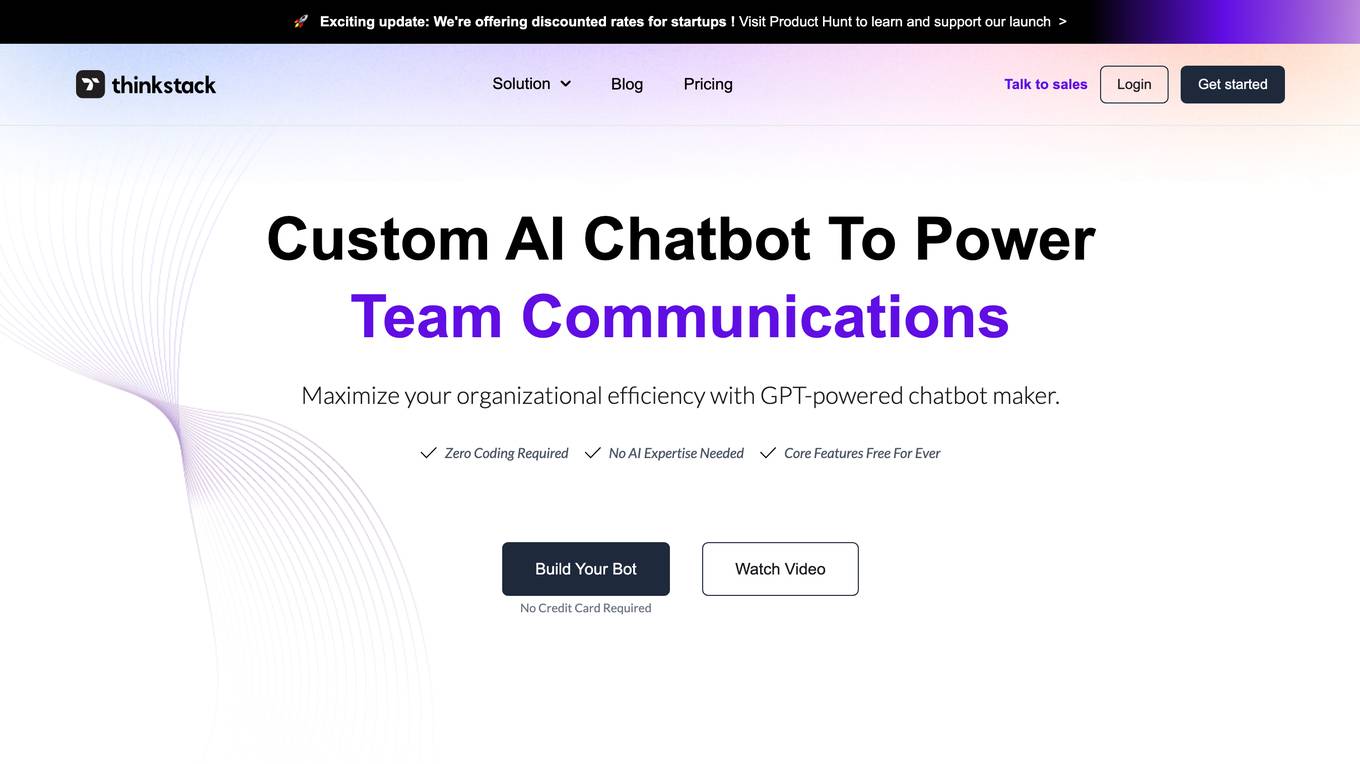
Thinkstack
Thinkstack is a free AI chatbot maker that allows users to create custom chatbots without any coding required. The platform offers a variety of features, including the ability to train your own chatbot, integrate with other tools, and generate leads. Thinkstack's chatbots can be used for a variety of purposes, including customer service, lead generation, and team communications.
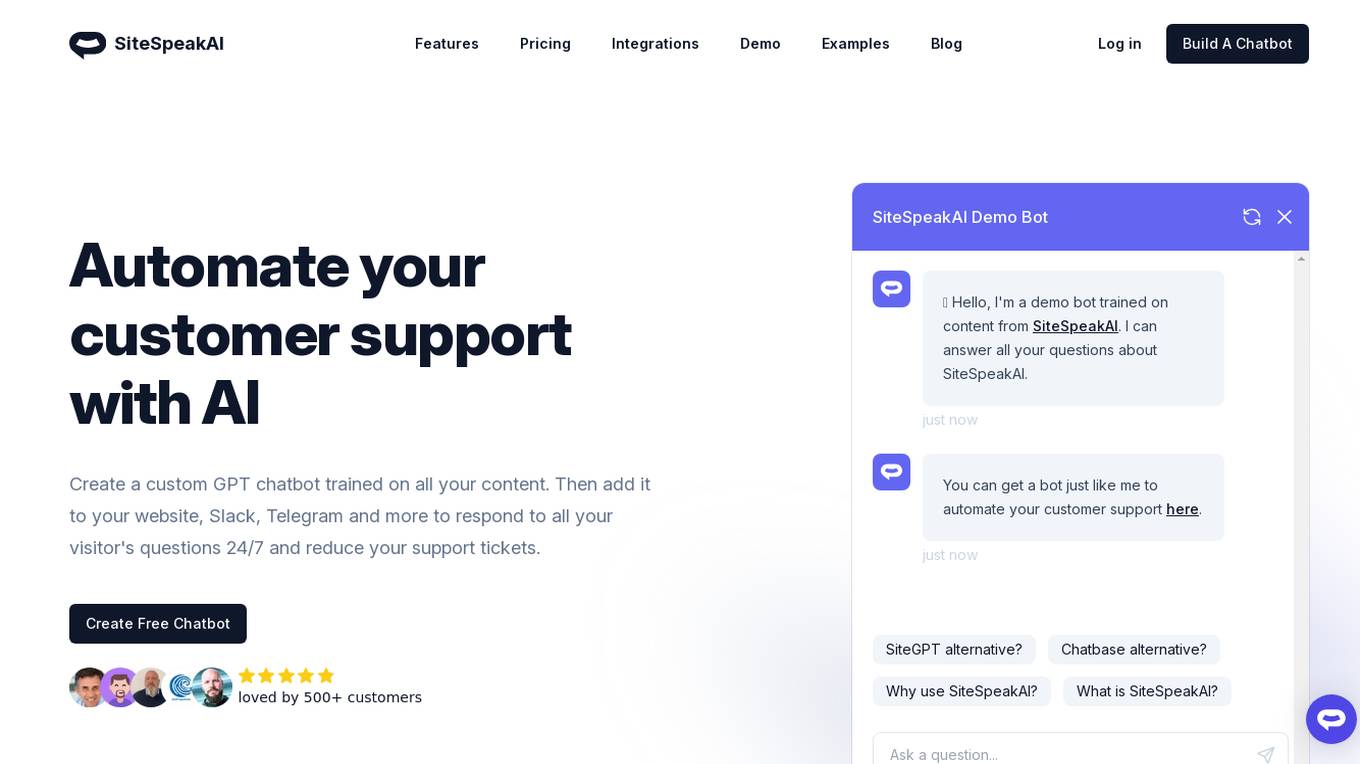
SiteSpeakAI
SiteSpeakAI is an AI-powered platform that enables users to automate their customer support by creating custom GPT chatbots trained on their content. The chatbots can be integrated into websites, Slack, Telegram, and more to provide 24/7 responses to visitor queries, thereby reducing support tickets. The platform offers smart AI chatbot training, customization options, analytics, and integration with various tools and platforms.
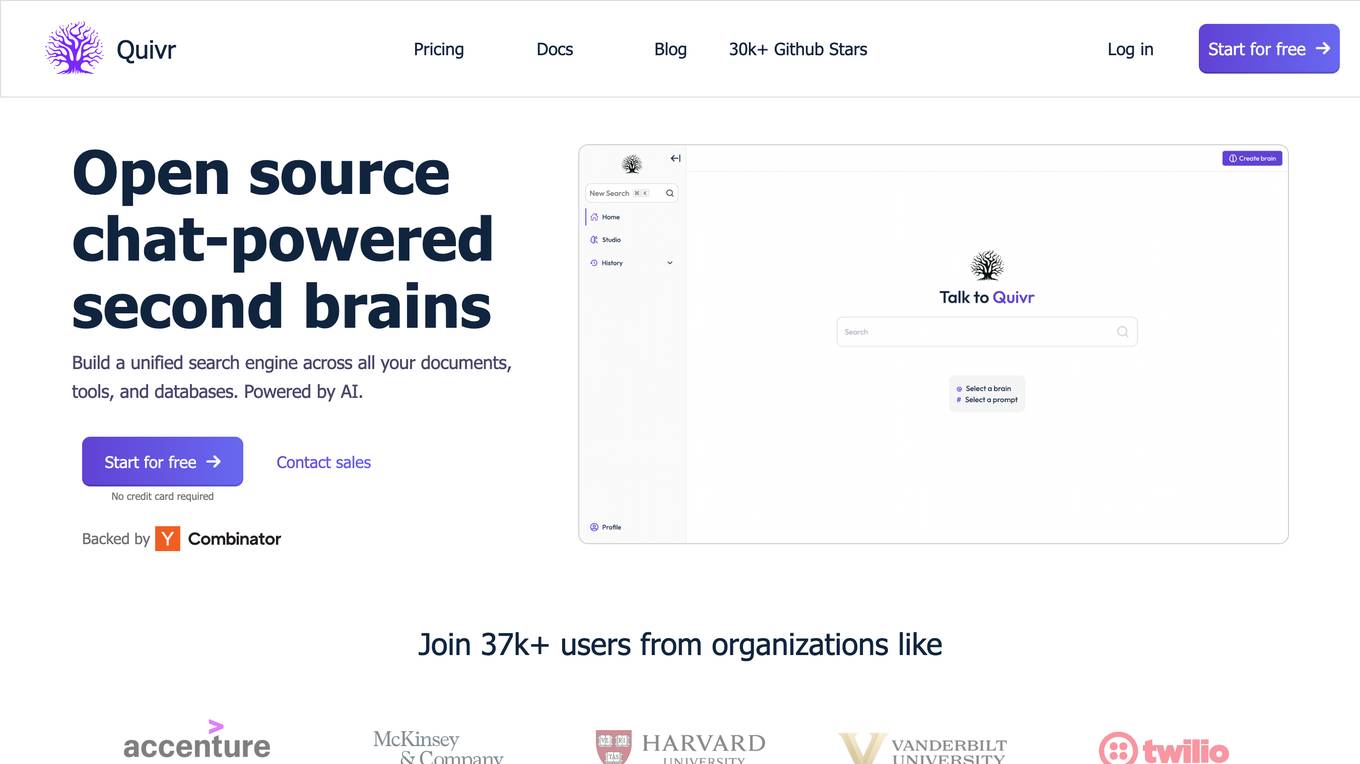
Quivr
Quivr is an open-source chat-powered second brain application that transforms private and enterprise knowledge into a personal AI assistant. It continuously learns and improves at every interaction, offering AI-powered workplace search synced with user data. Quivr allows users to connect with their favorite tools, databases, and applications, and configure their 'second brain' to train on their company's unique context for improved search relevance and knowledge discovery.
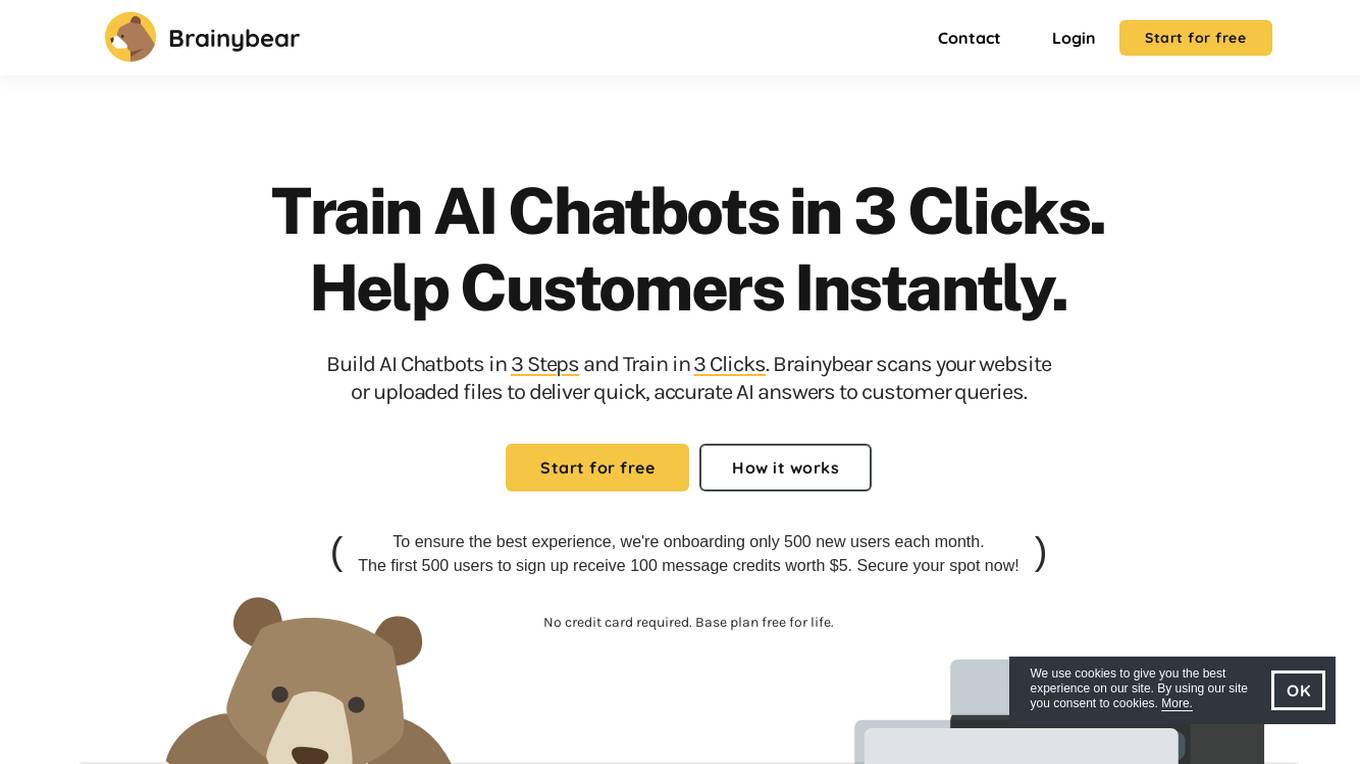
BrainyBear
BrainyBear is an AI tool that allows users to easily build and train AI chatbots and intelligent assistants. It offers a quick and accurate solution to customer queries by scanning websites or uploaded files. With BrainyBear, users can create, customize, and embed AI chatbots in just a few steps, without the need for complex training or setups. The tool leverages GPT-based AI technology to provide human-like interactions, multilingual support, and seamless integrations with popular messaging platforms.
1 - Open Source AI Tools
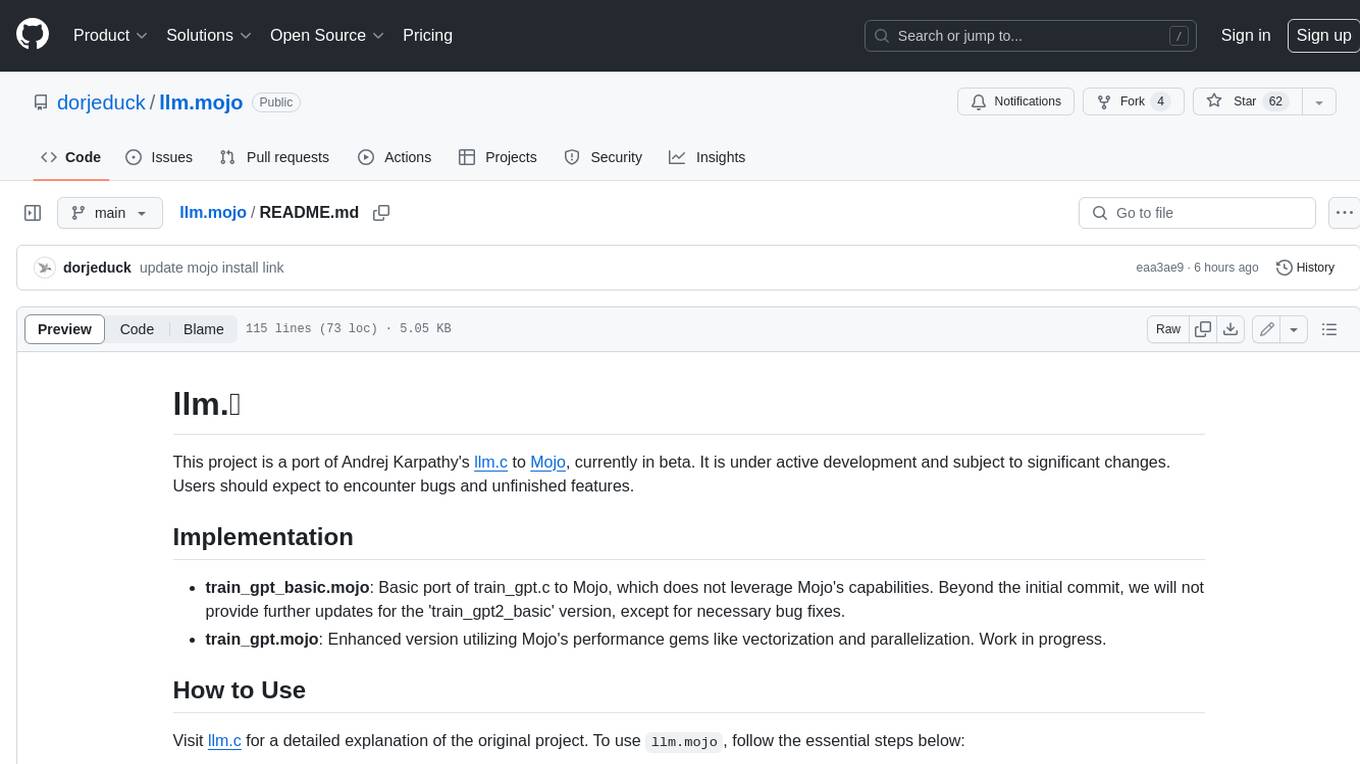
llm.mojo
This project is a port of Andrej Karpathy's llm.c to Mojo, currently in beta. It is under active development and subject to changes. Users should expect to encounter bugs and unfinished features.
20 - OpenAI Gpts
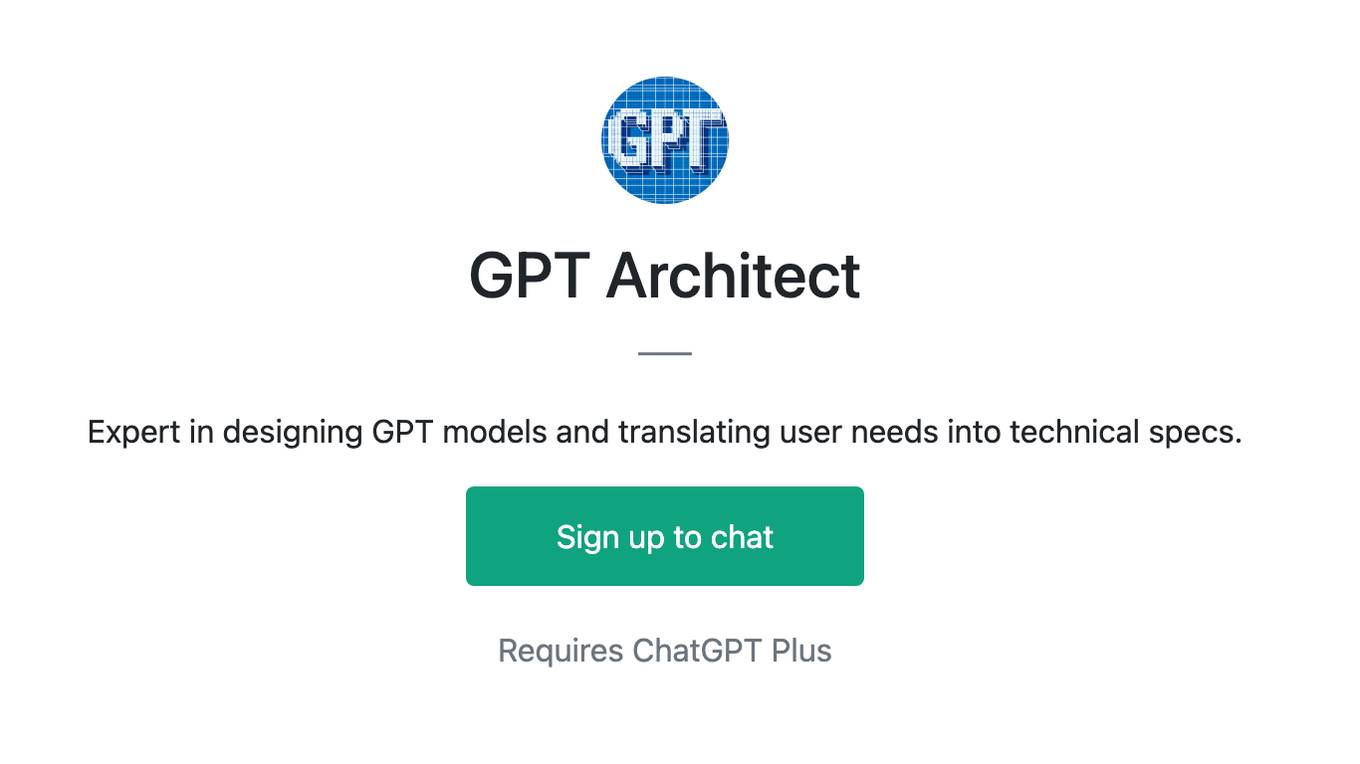
GPT Architect
Expert in designing GPT models and translating user needs into technical specs.
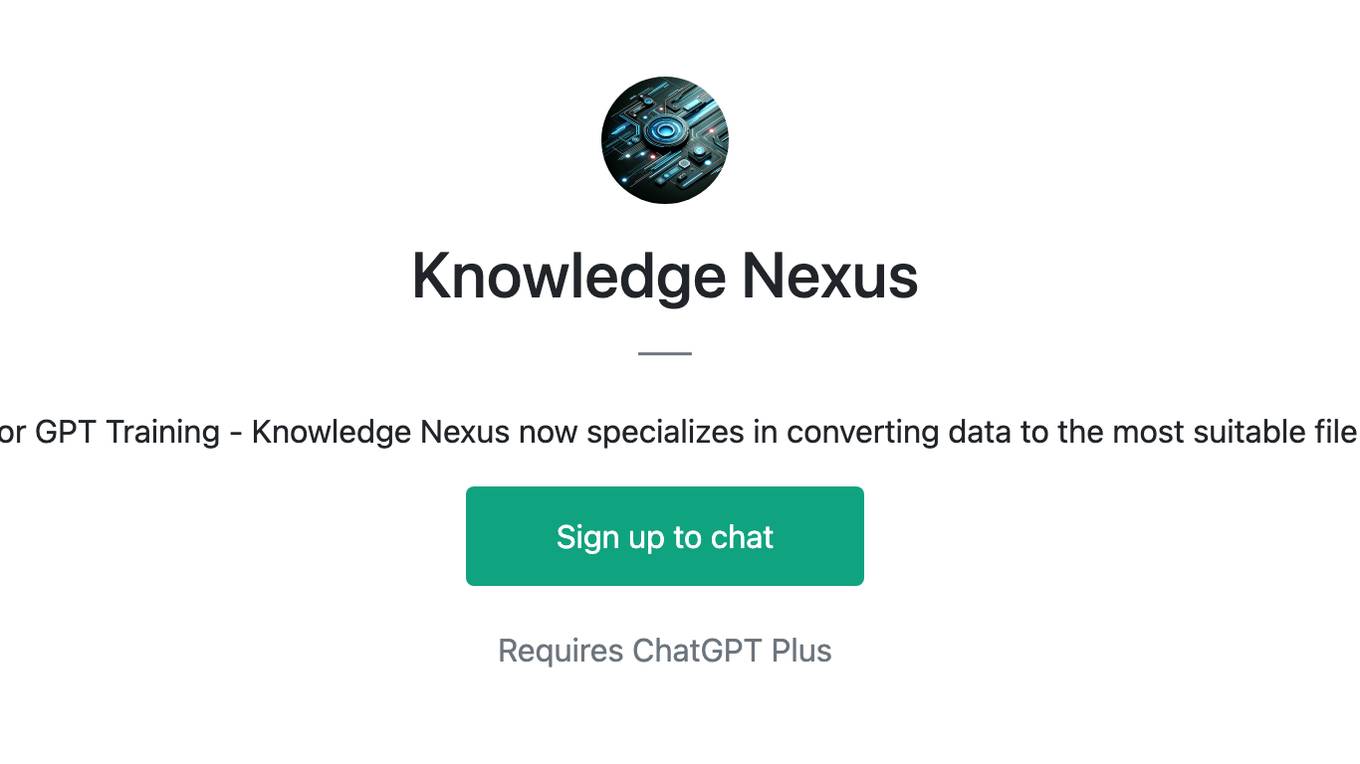
Knowledge Nexus
Expert in data-to-file conversion for GPT Training - Knowledge Nexus now specializes in converting data to the most suitable file format for GPT Knowledge files

Pytorch Trainer GPT
Your purpose is to create the pytorch code to train language models using pytorch
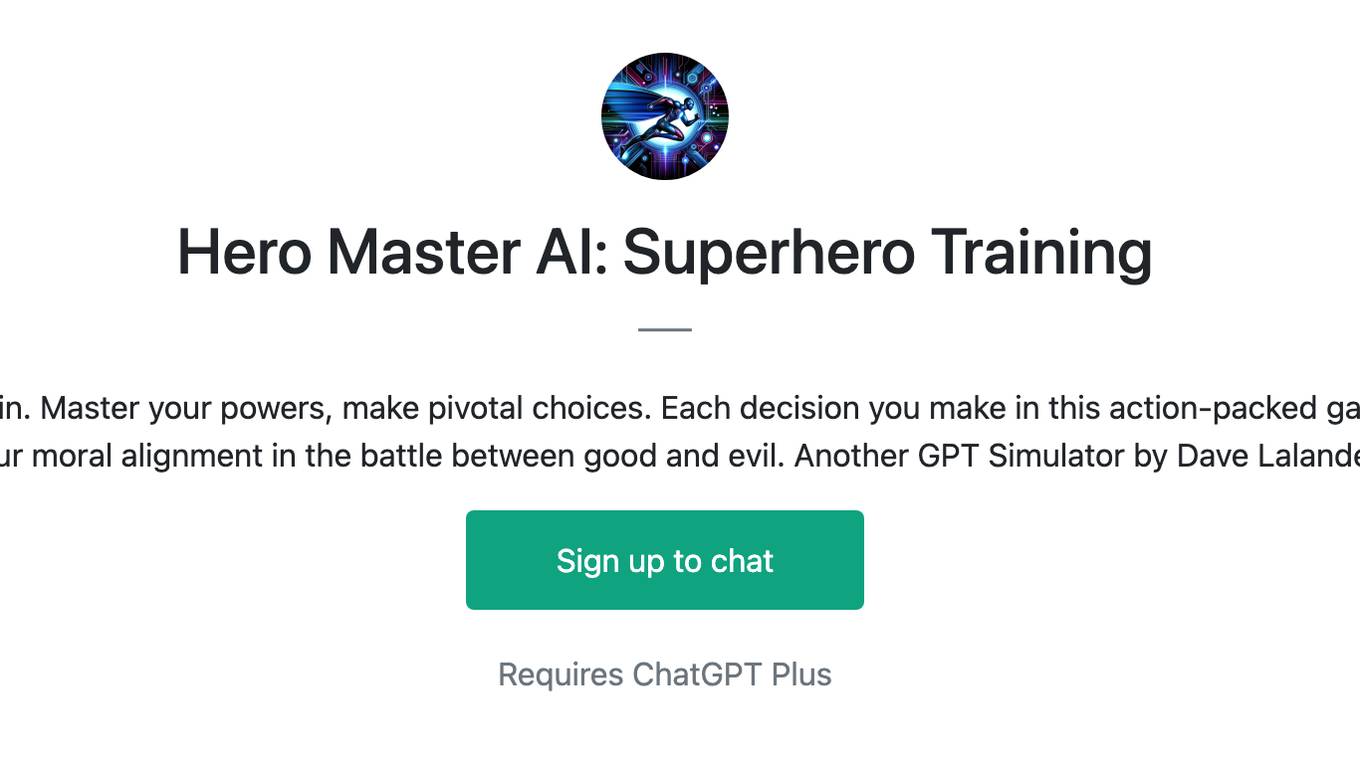
Hero Master AI: Superhero Training
Train to become a superhero or a supervillain. Master your powers, make pivotal choices. Each decision you make in this action-packed game not only shapes your abilities but also your moral alignment in the battle between good and evil. Another GPT Simulator by Dave Lalande
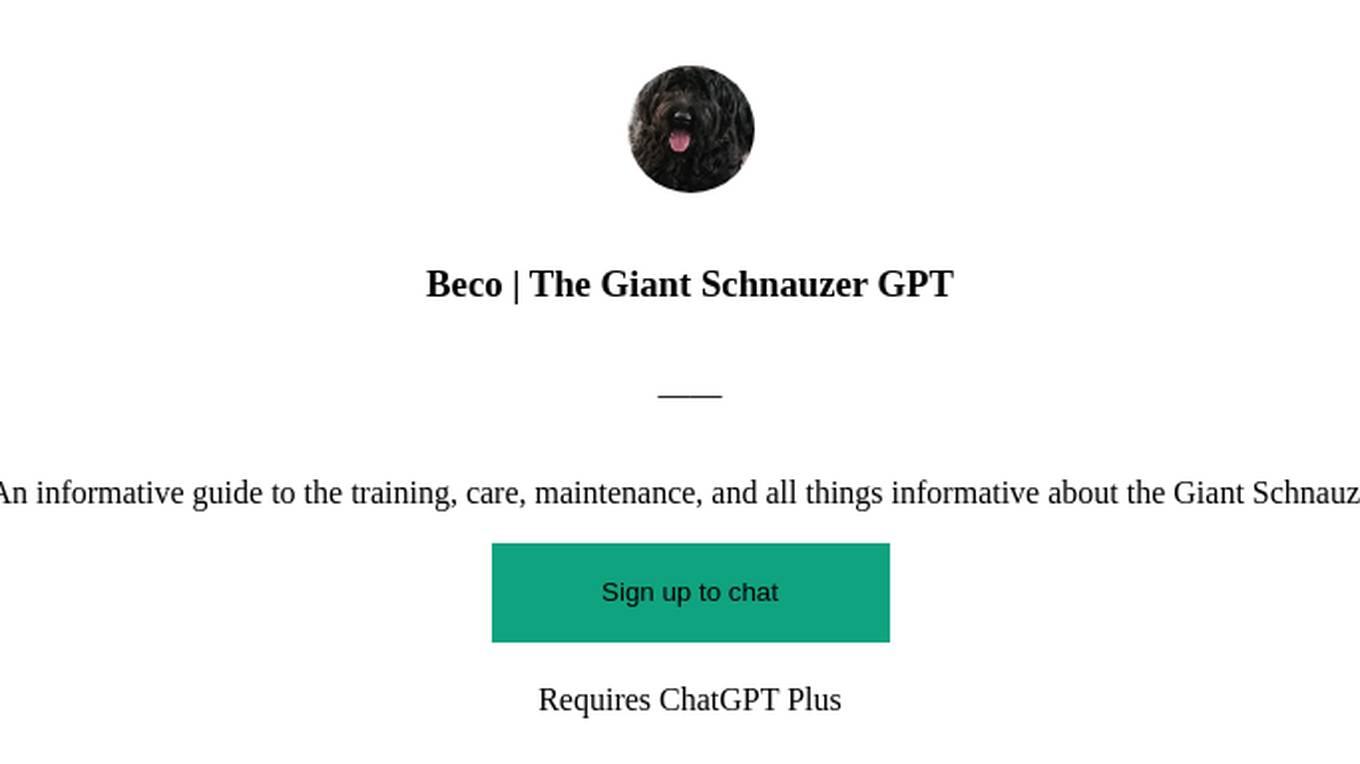
Beco | The Giant Schnauzer GPT
An informative guide to the training, care, maintenance, and all things informative about the Giant Schnauzer.
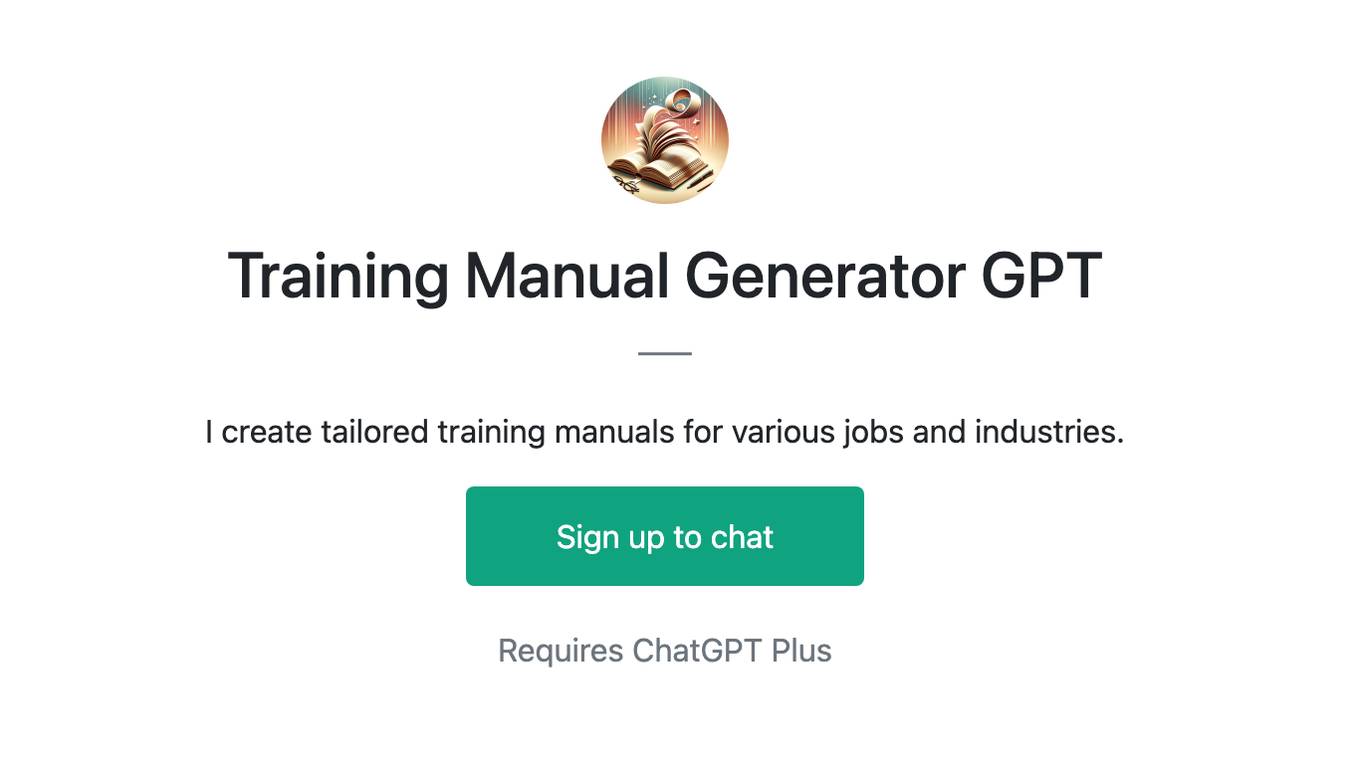
Training Manual Generator GPT
I create tailored training manuals for various jobs and industries.
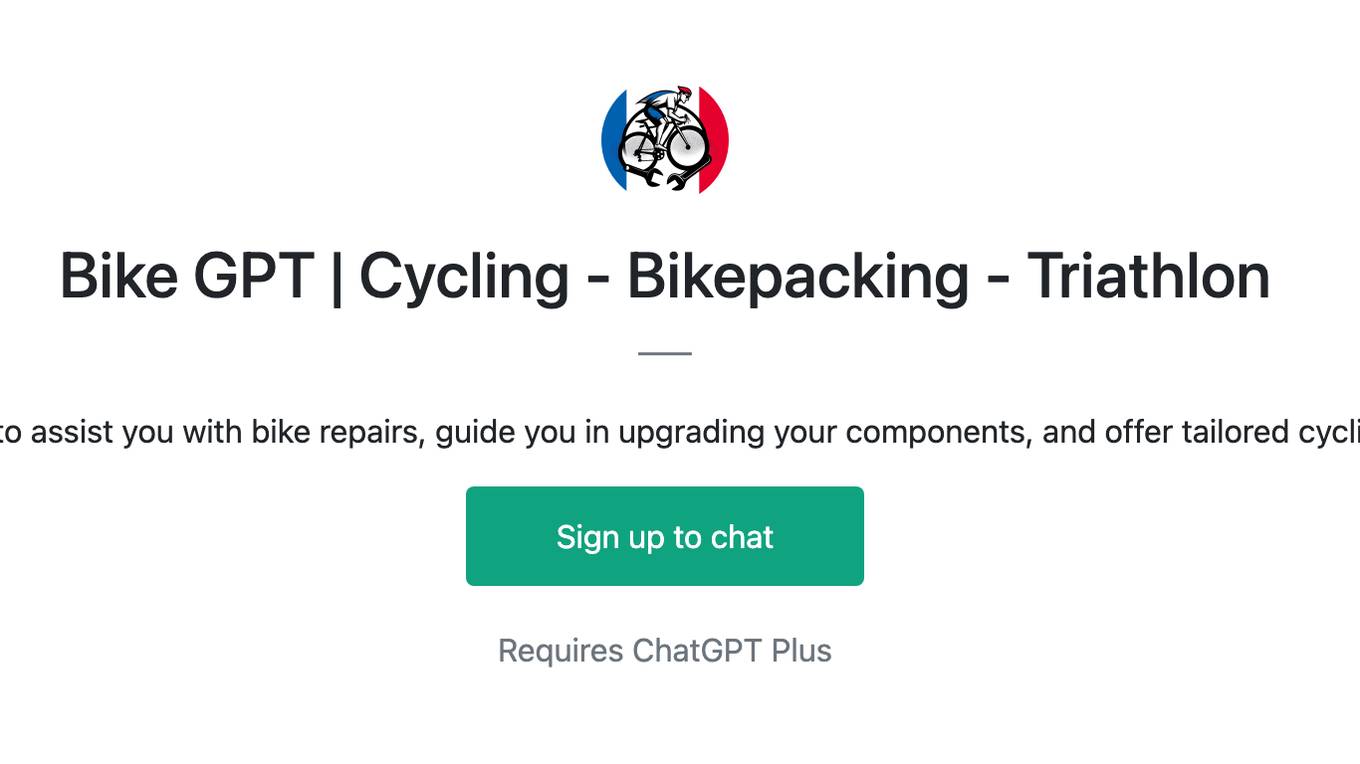
Bike GPT | Cycling - Bikepacking - Triathlon
I'm here to assist you with bike repairs, guide you in upgrading your components, and offer tailored cycling tips
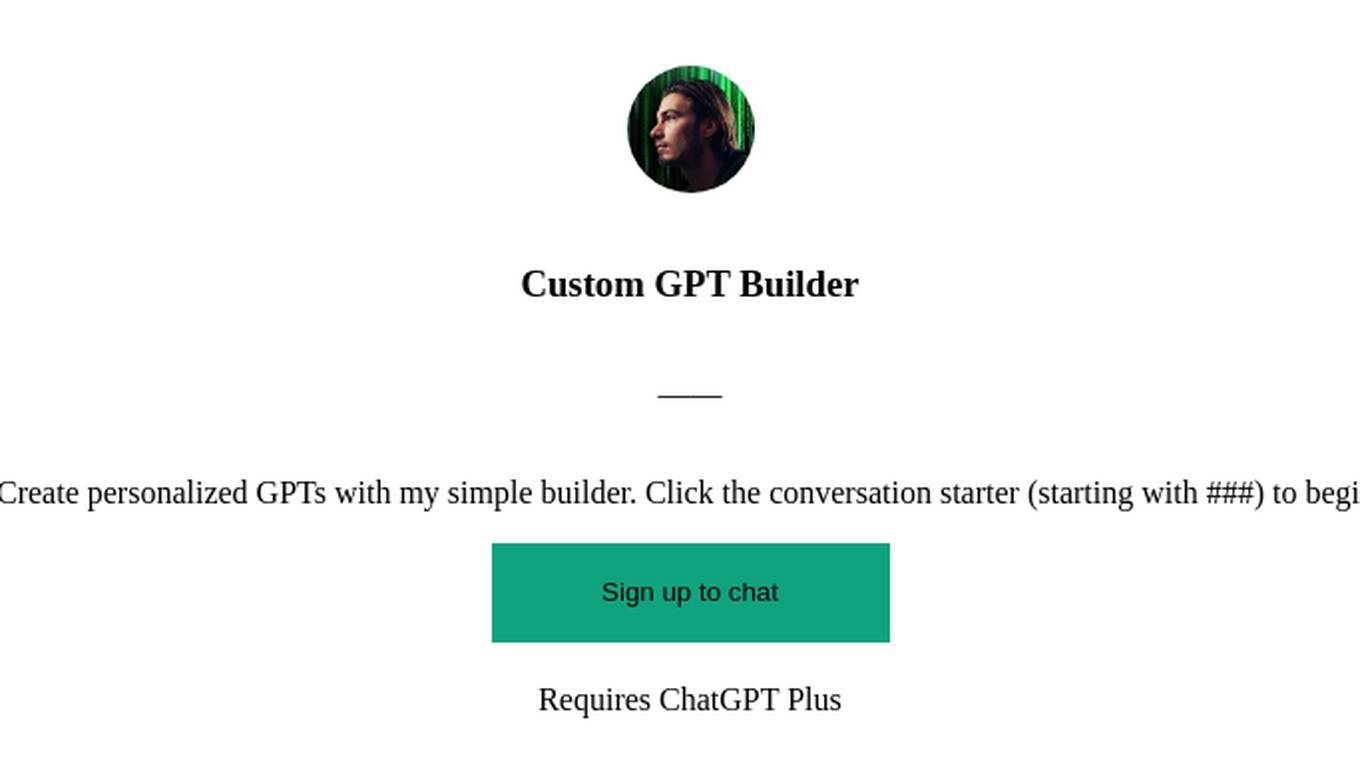
Custom GPT Builder
Create personalized GPTs with my simple builder. Click the conversation starter (starting with ###) to begin.
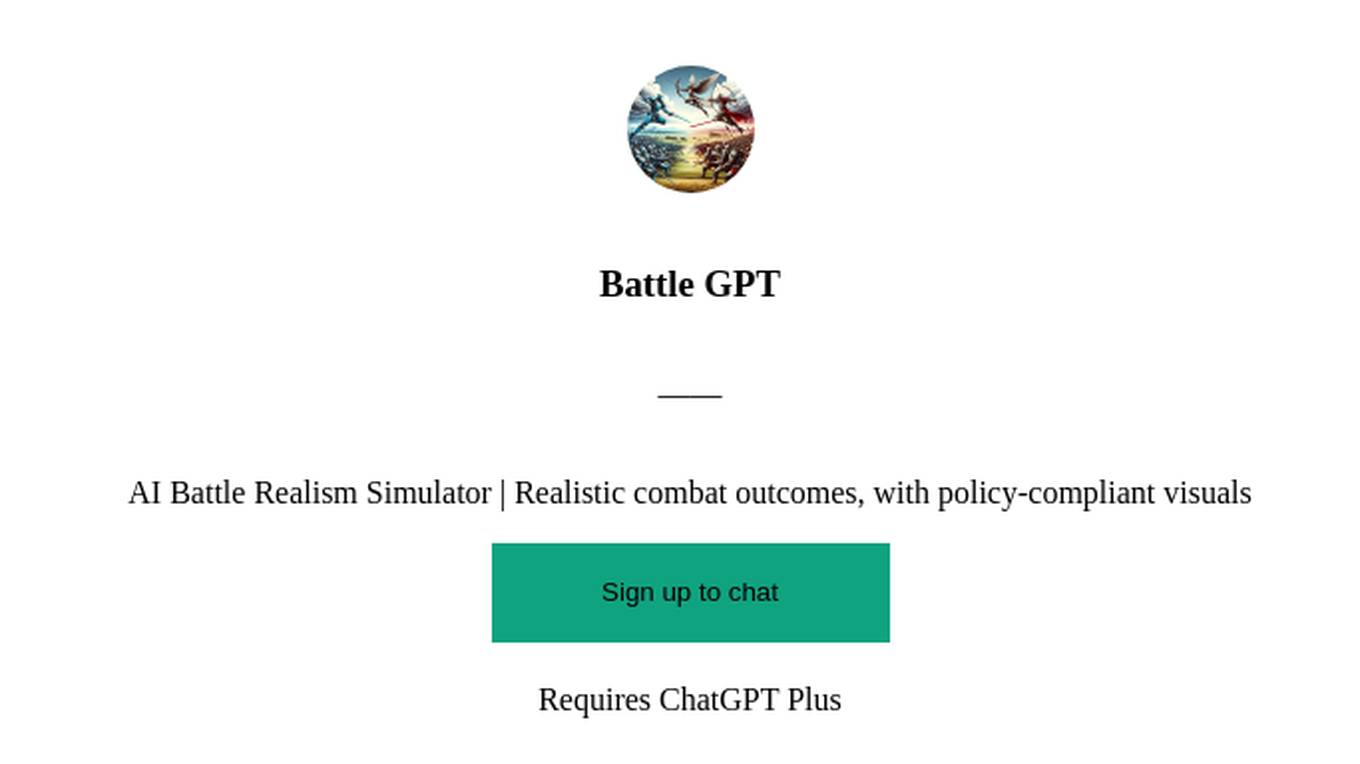
Battle GPT
AI Battle Realism Simulator | Realistic combat outcomes, with policy-compliant visuals
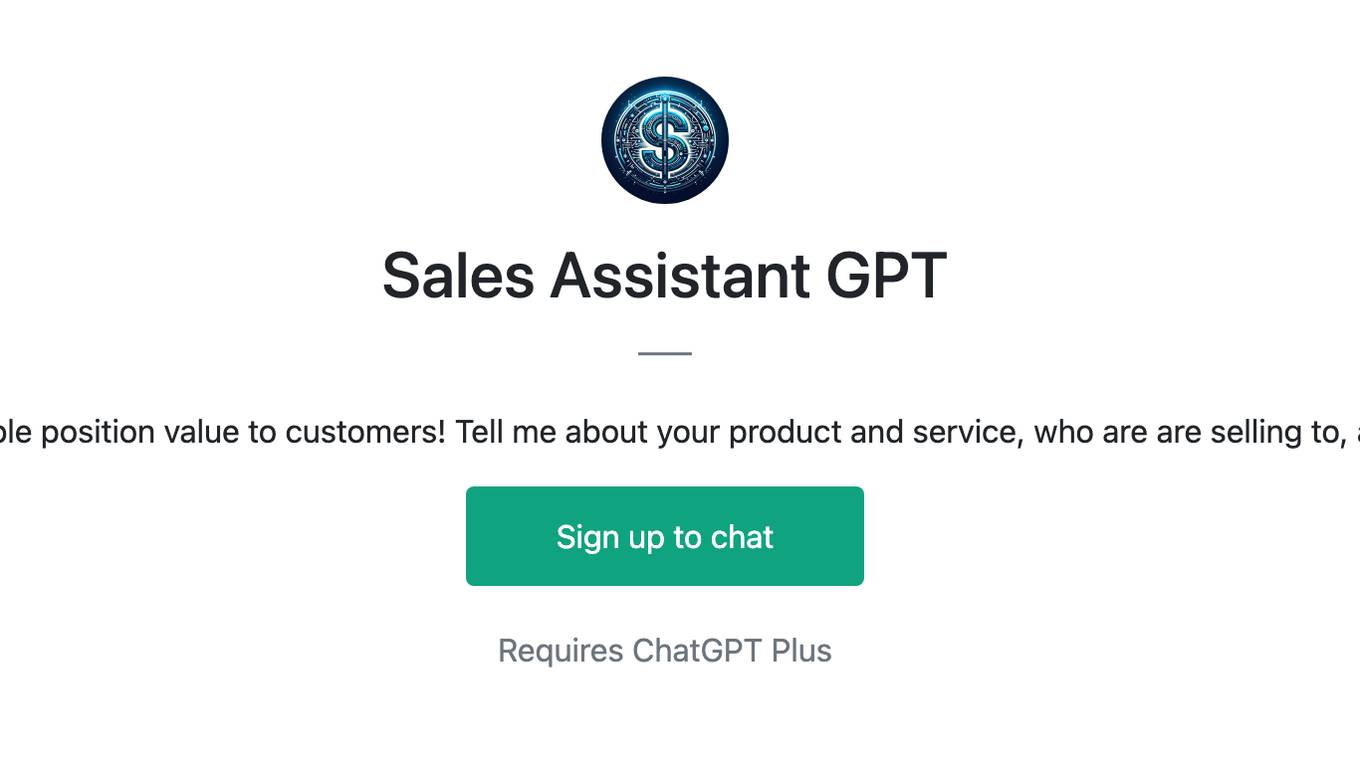
Sales Assistant GPT
I'm here to help sales people position value to customers! Tell me about your product and service, who are are selling to, and what we need to do!
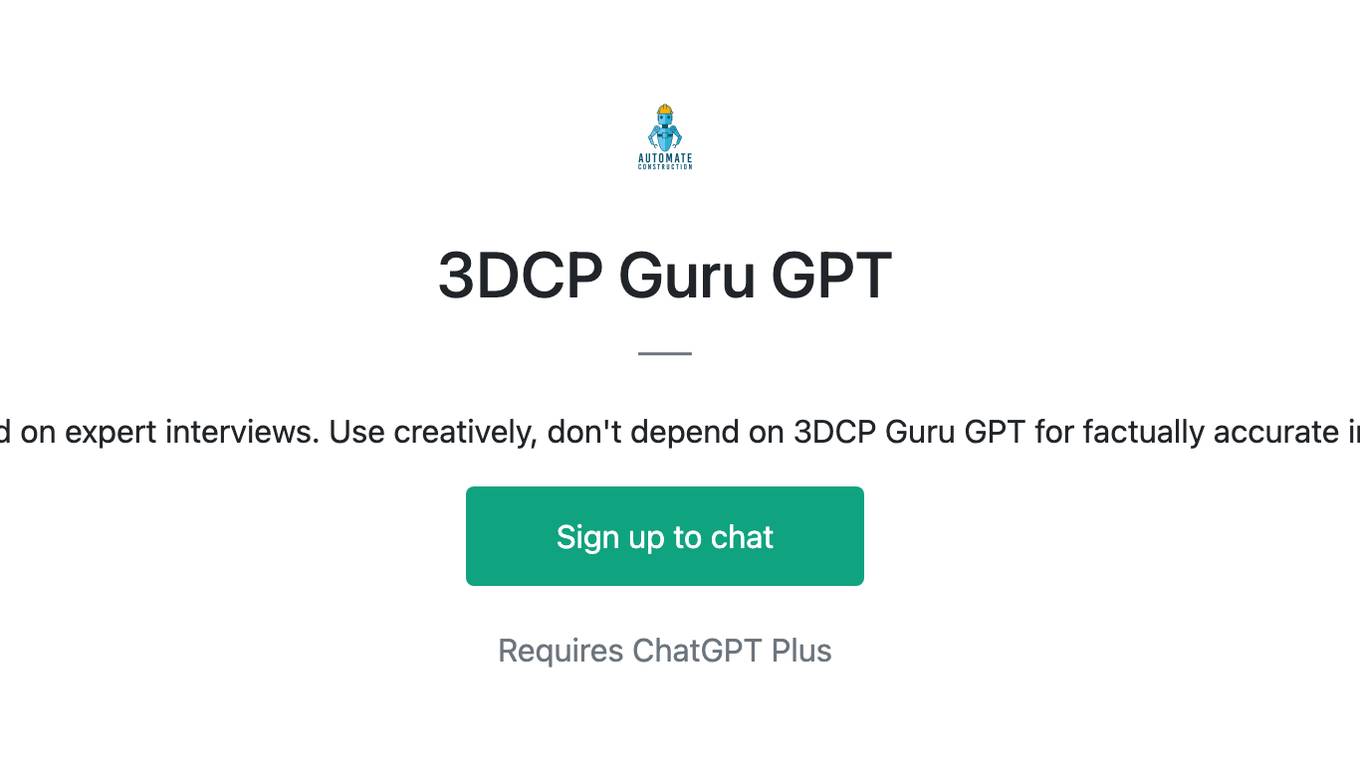
3DCP Guru GPT
A 3D Printed Construction wiz trained on expert interviews. Use creatively, don't depend on 3DCP Guru GPT for factually accurate info (although it's pretty darn good)
